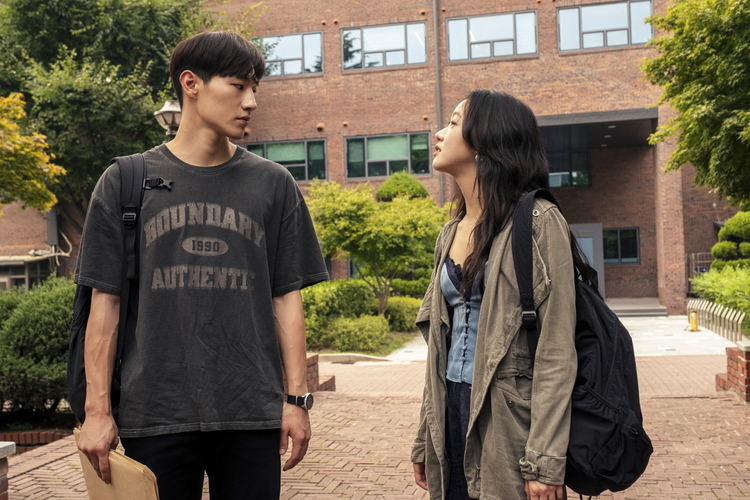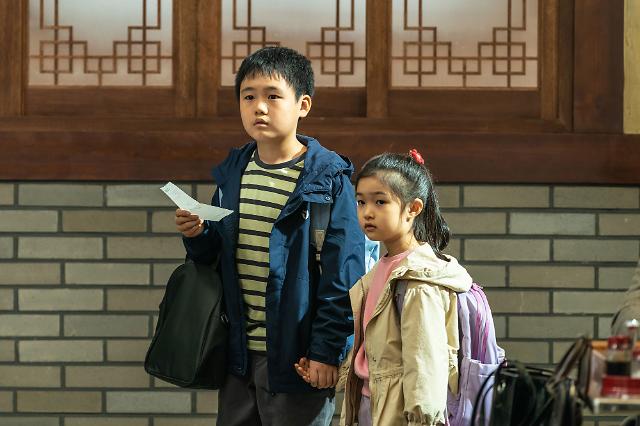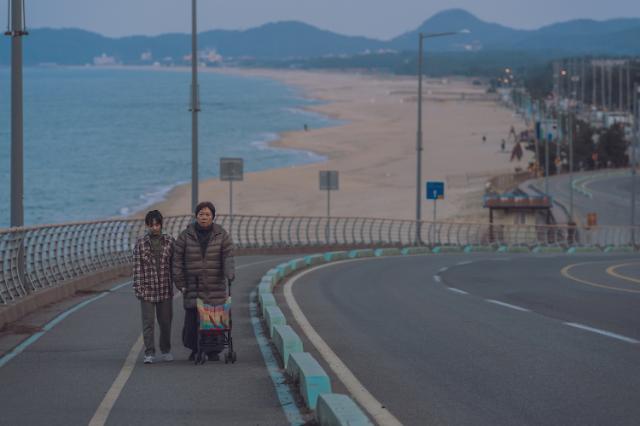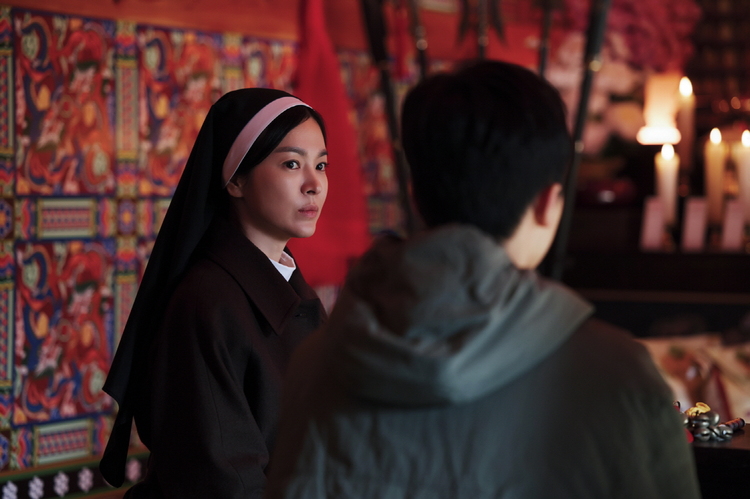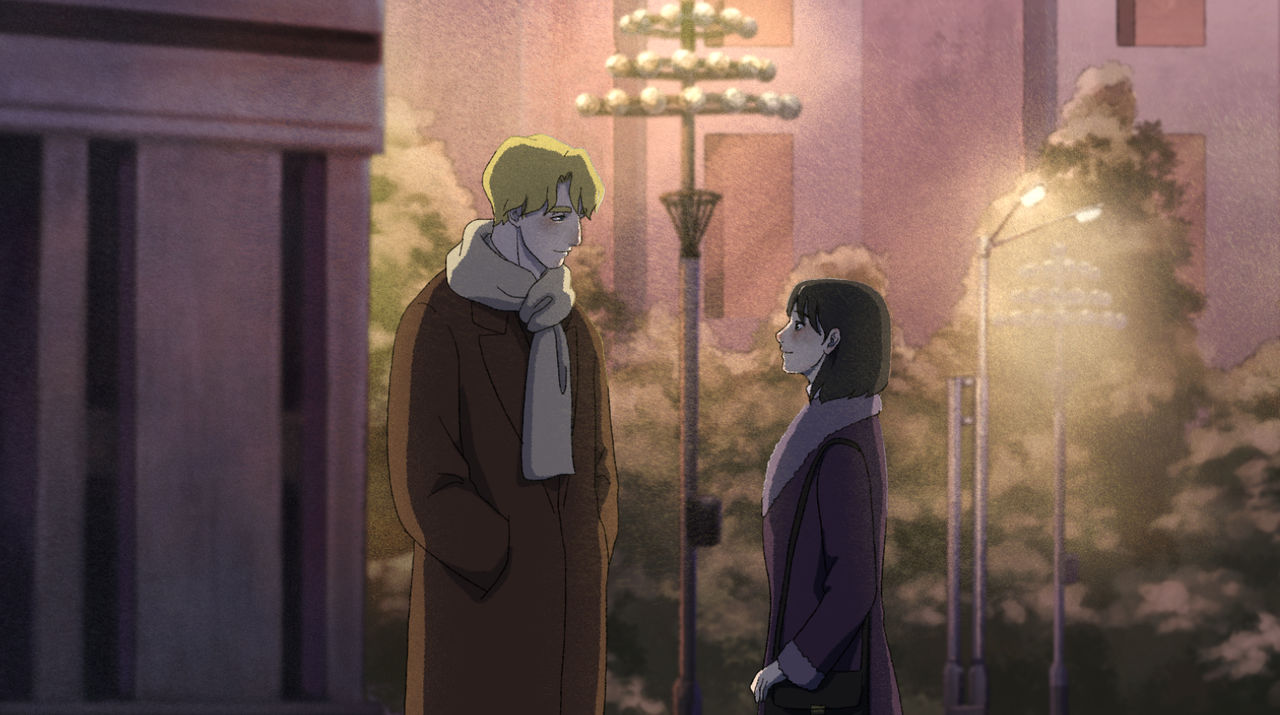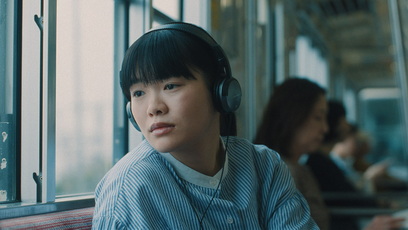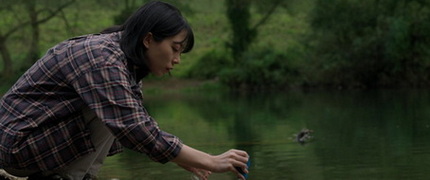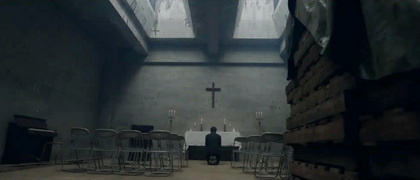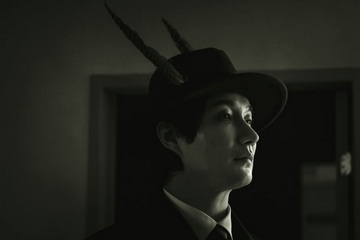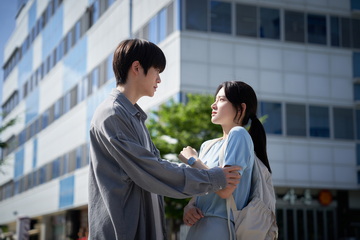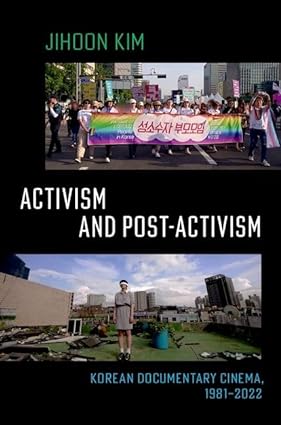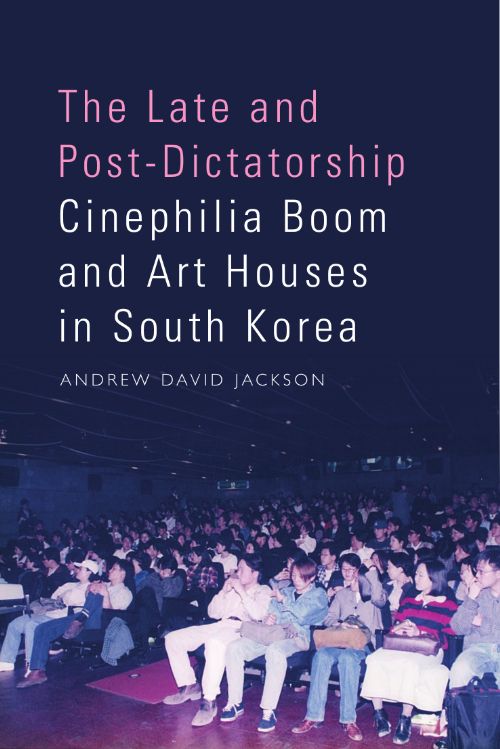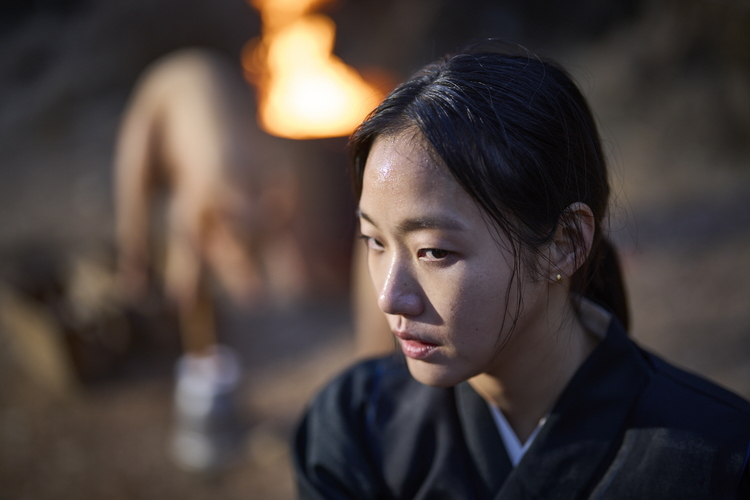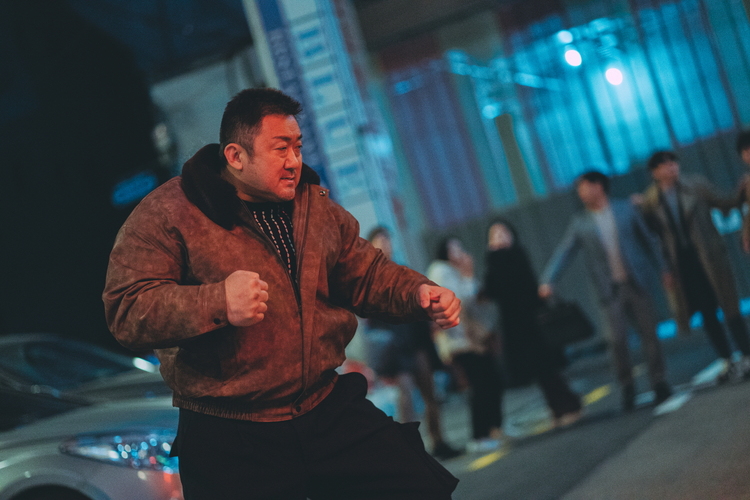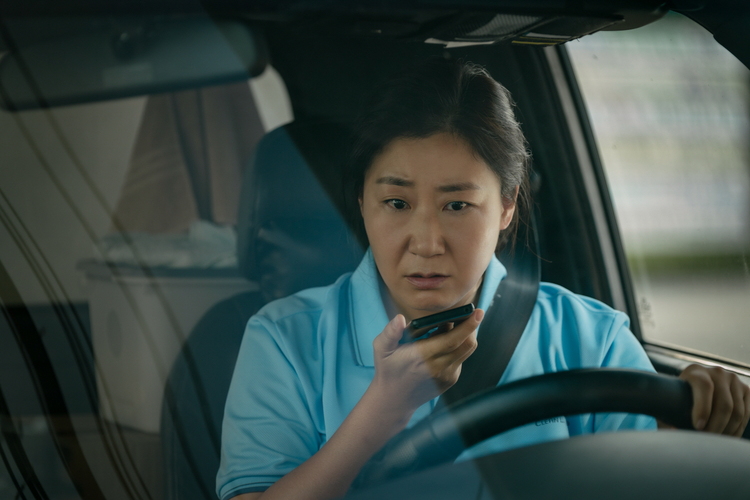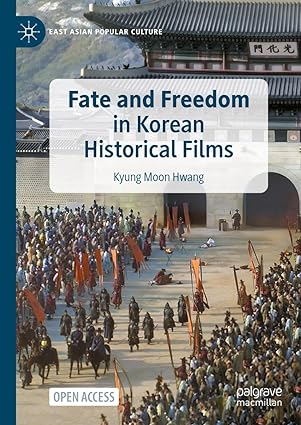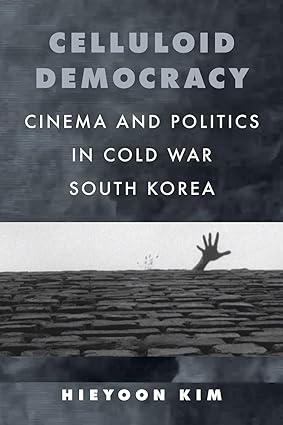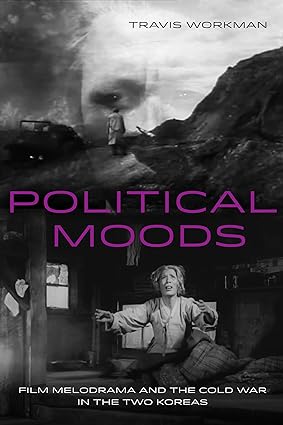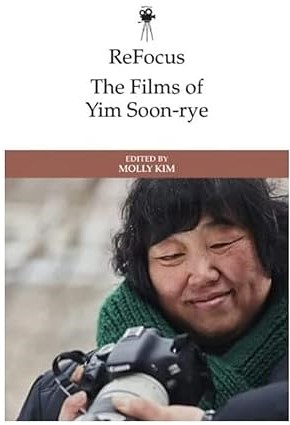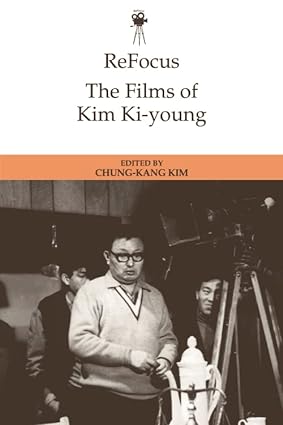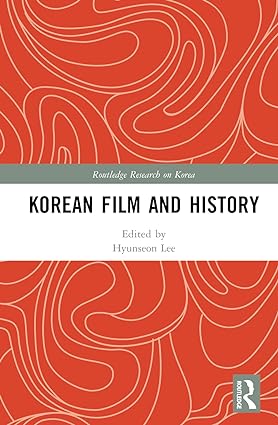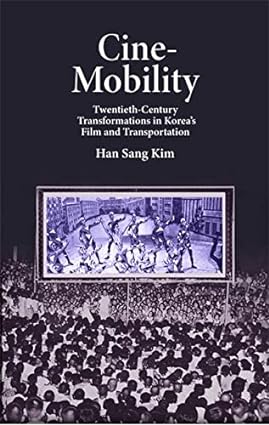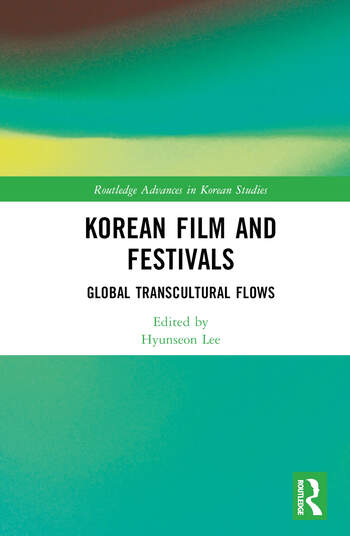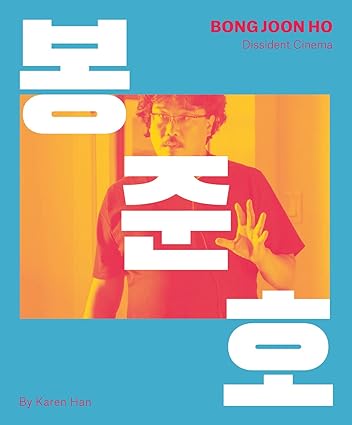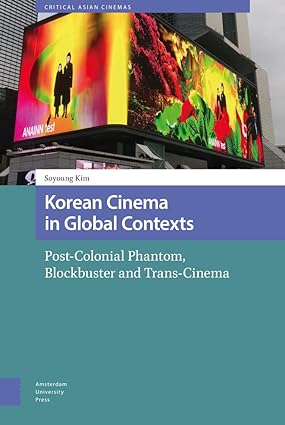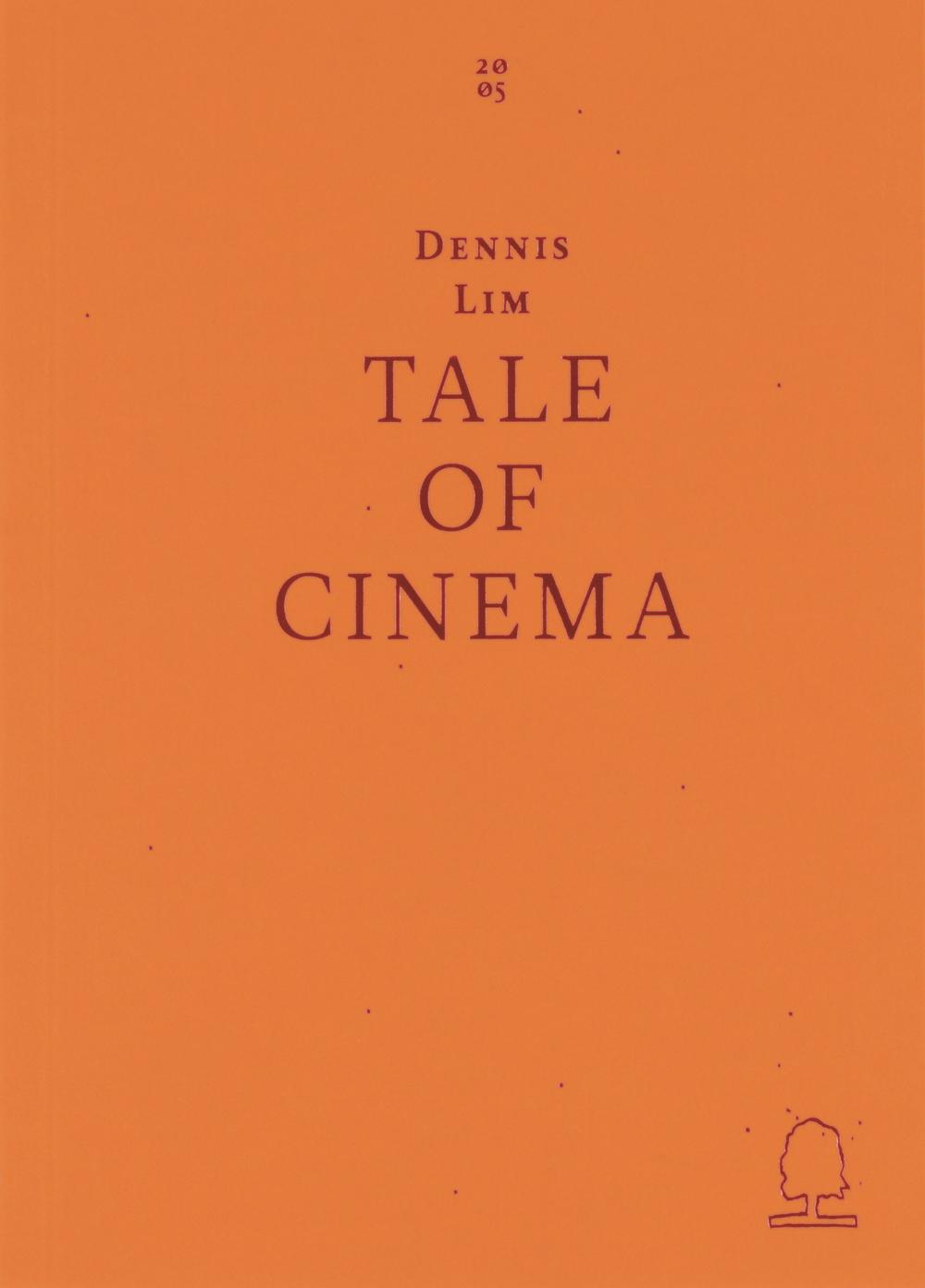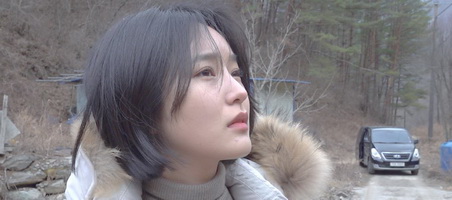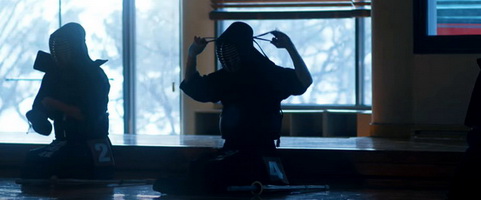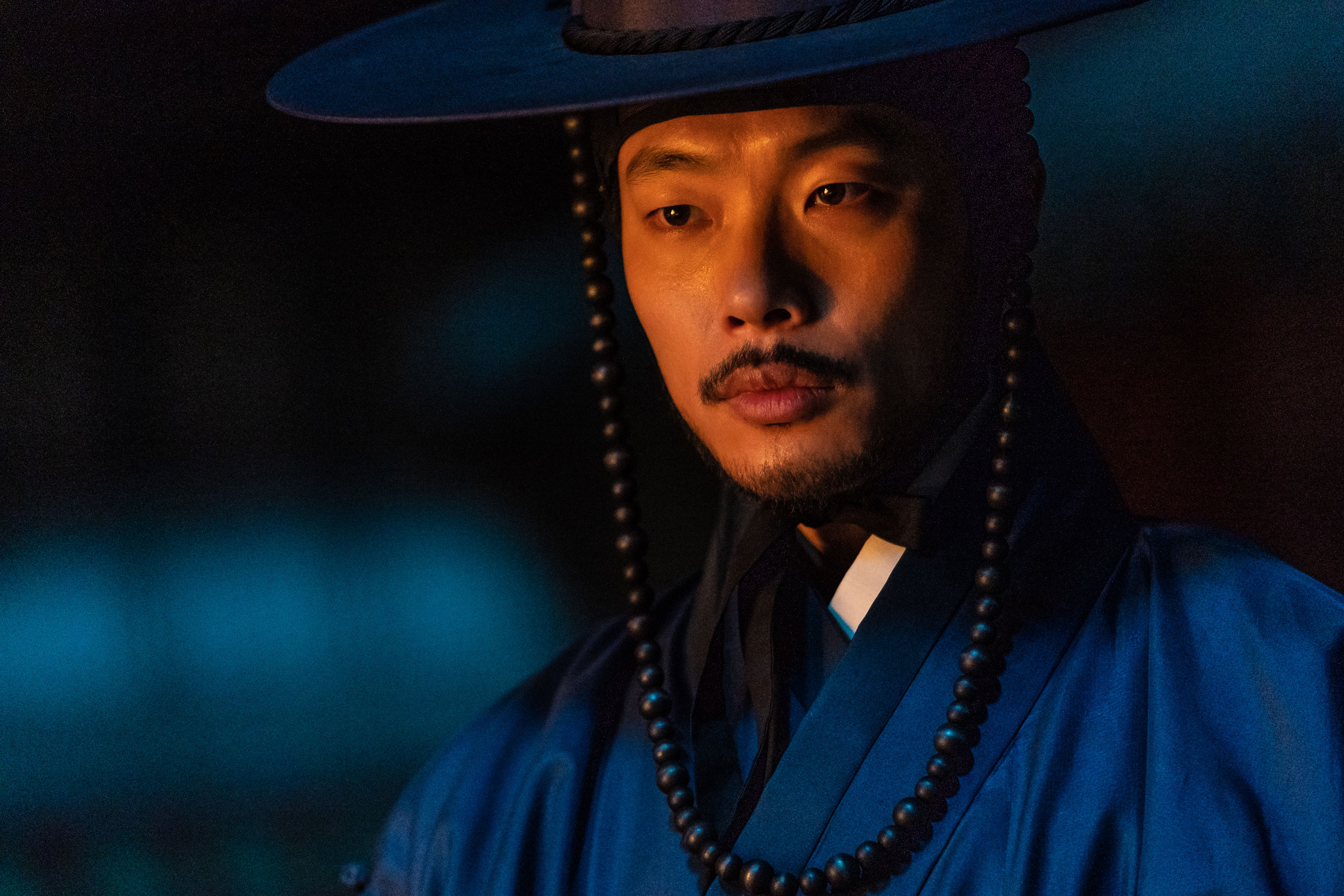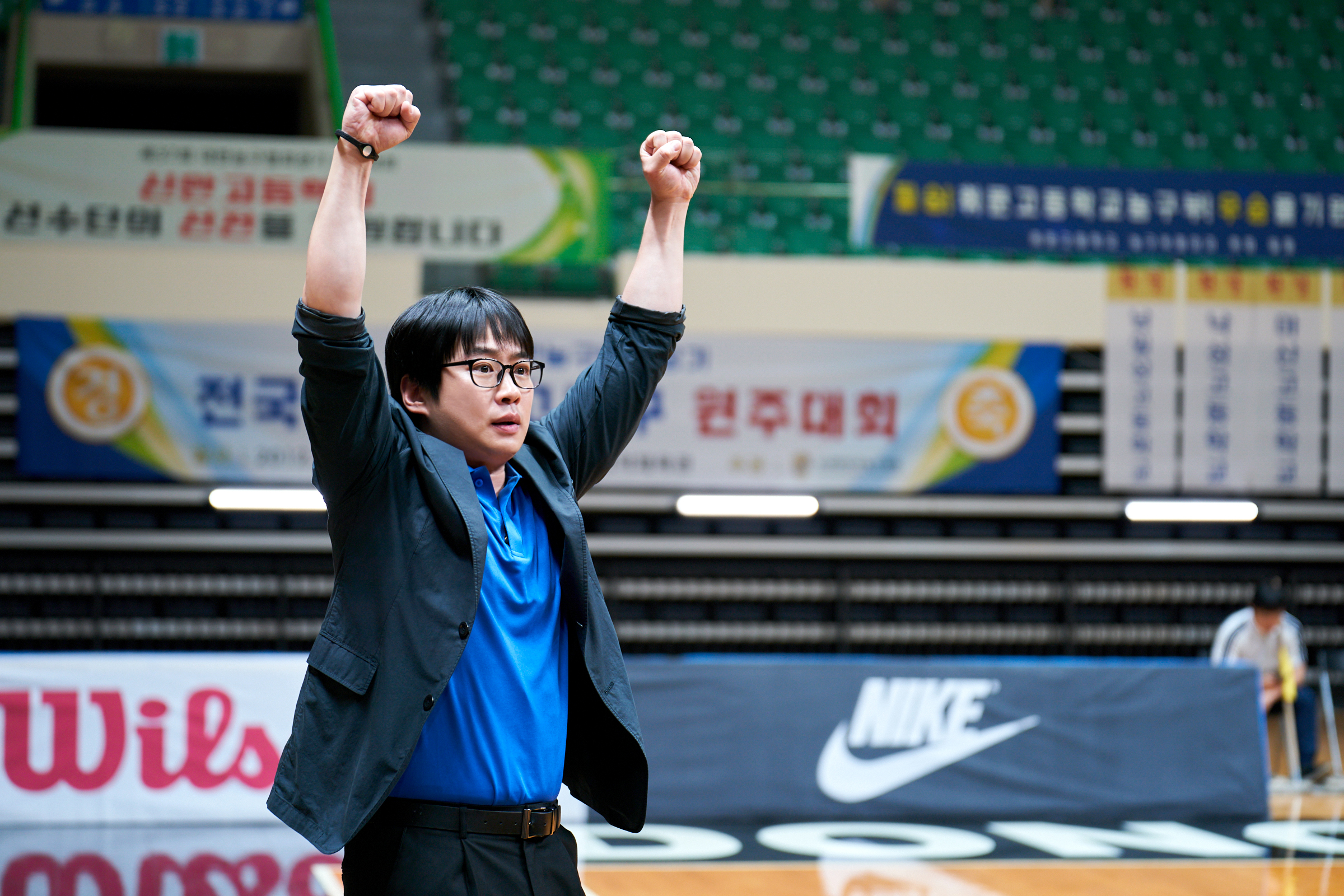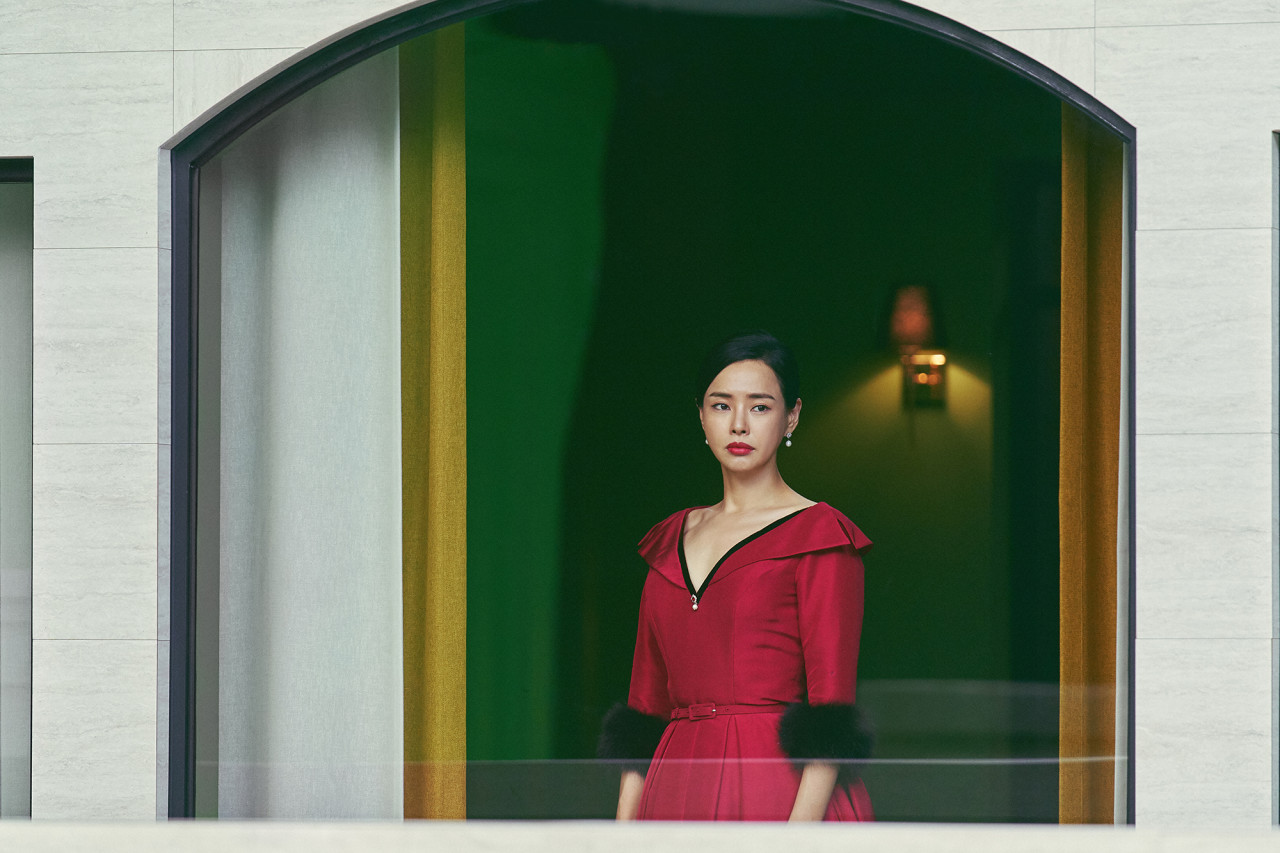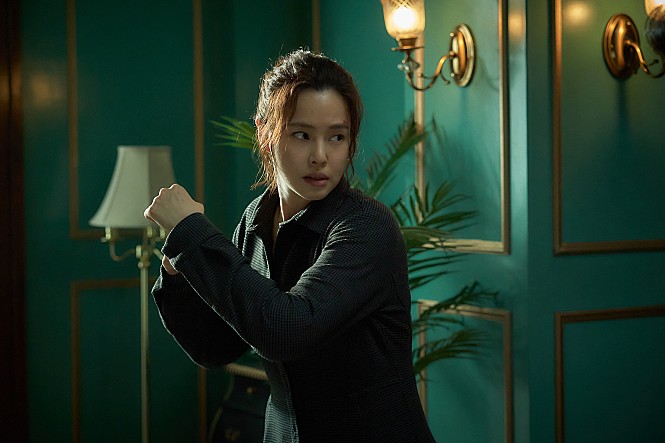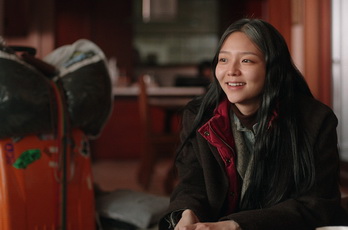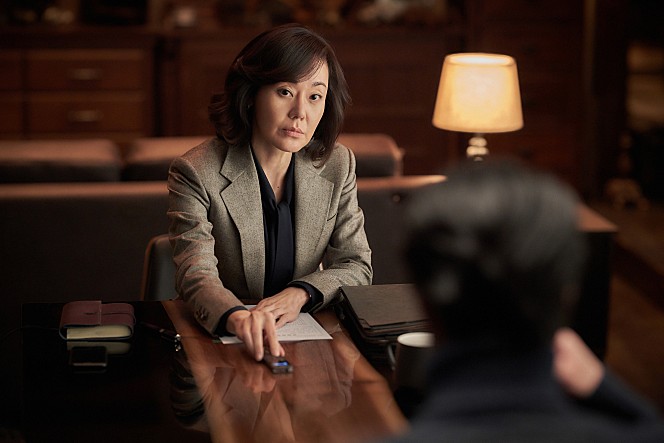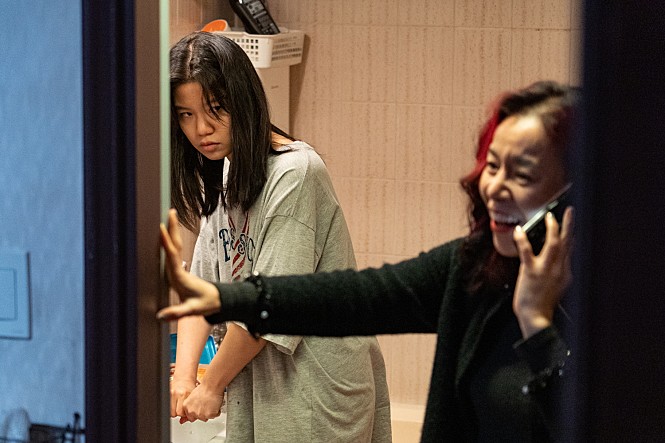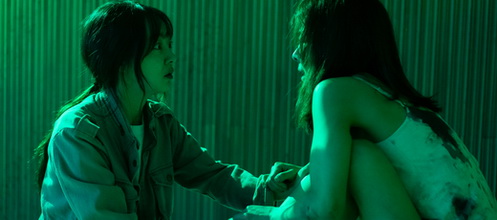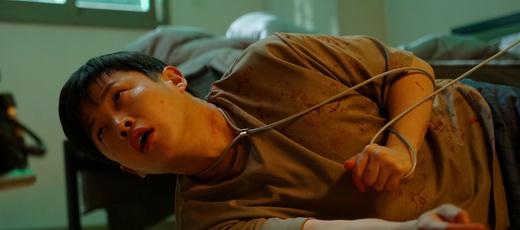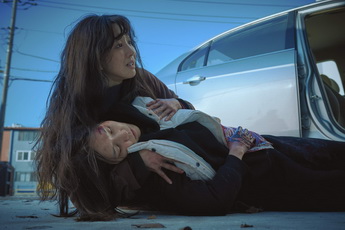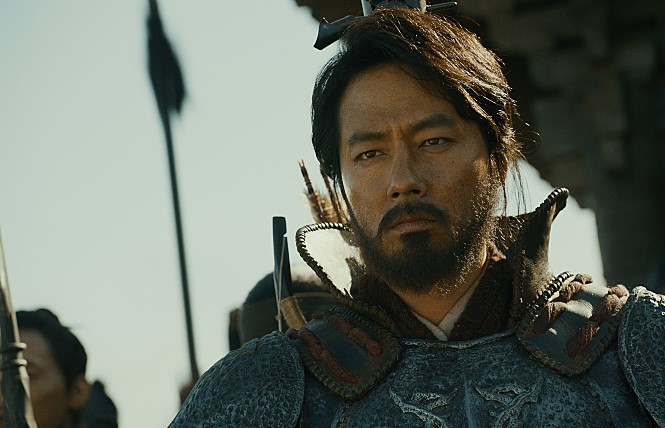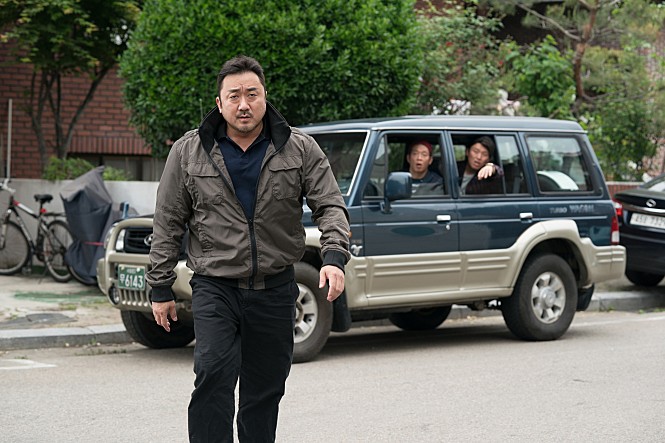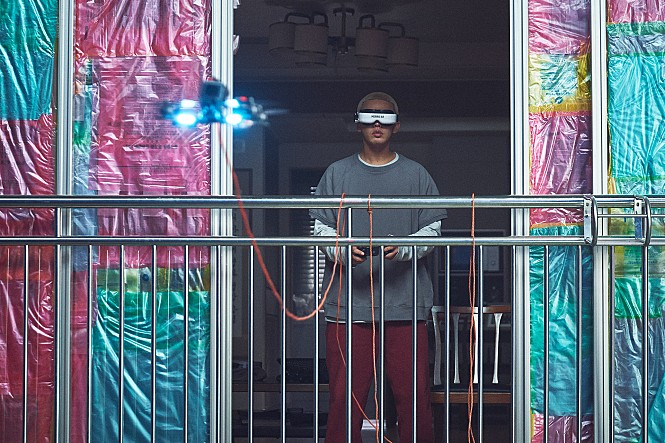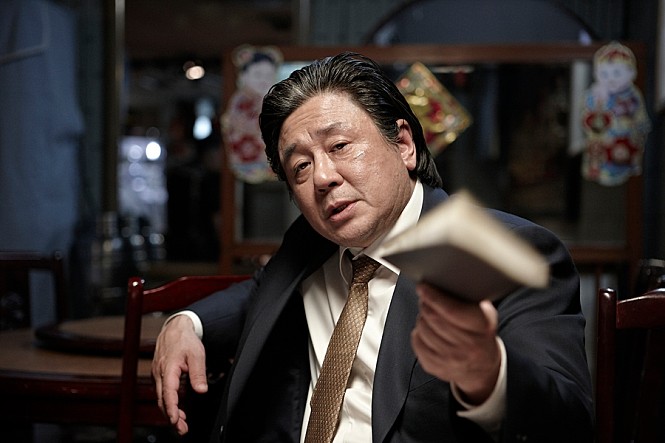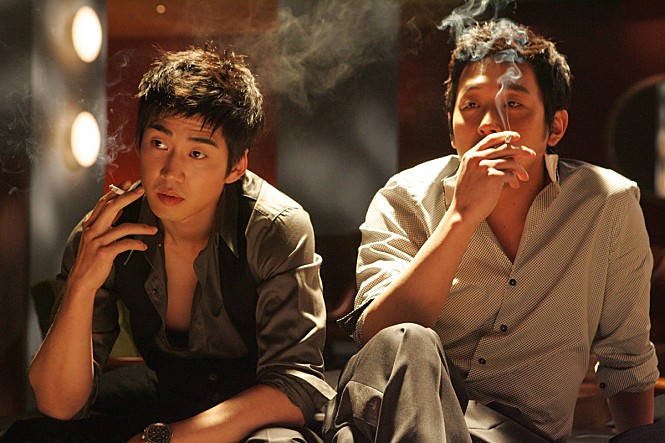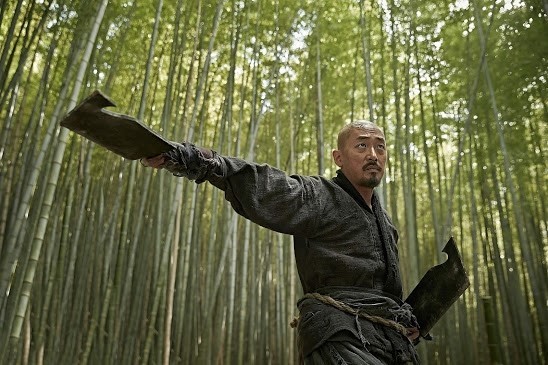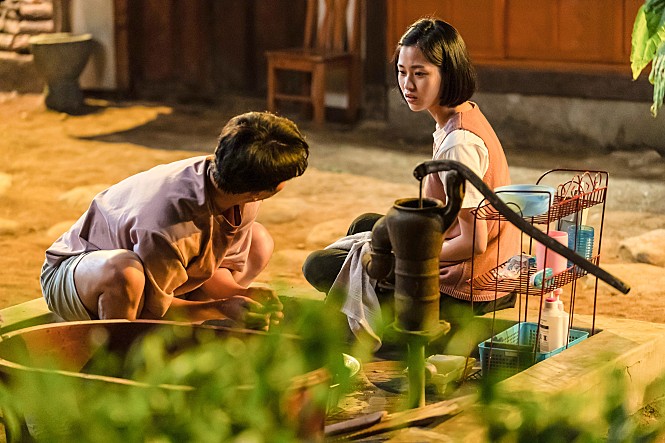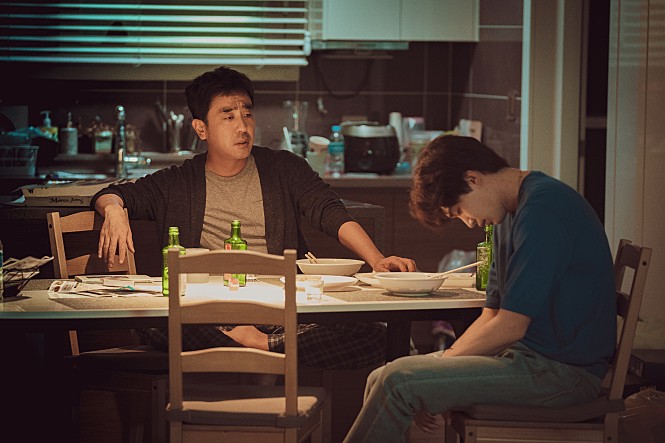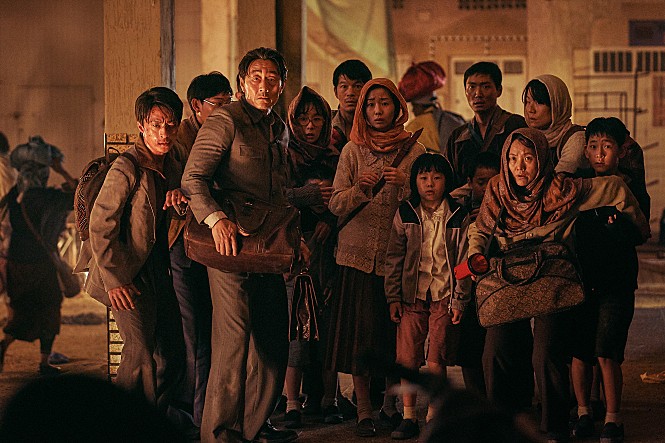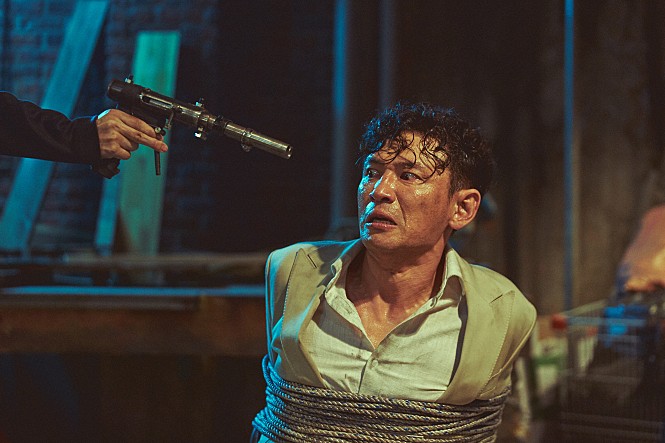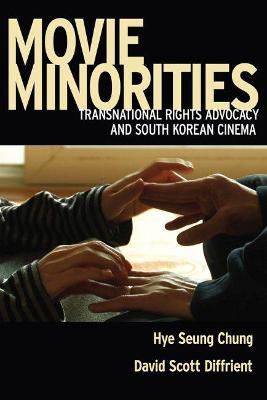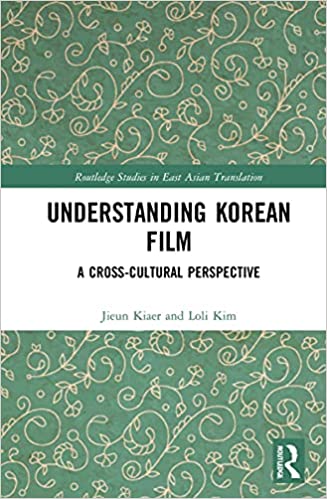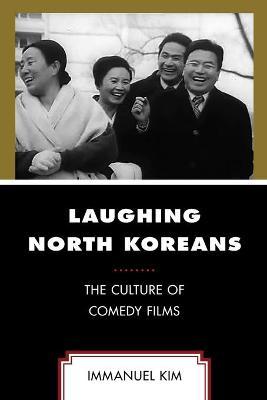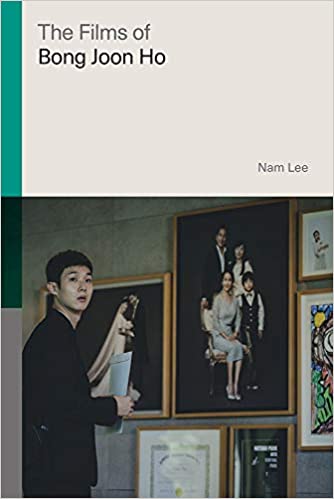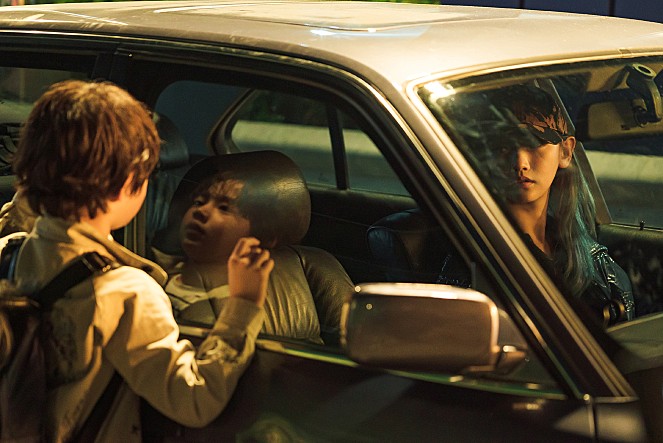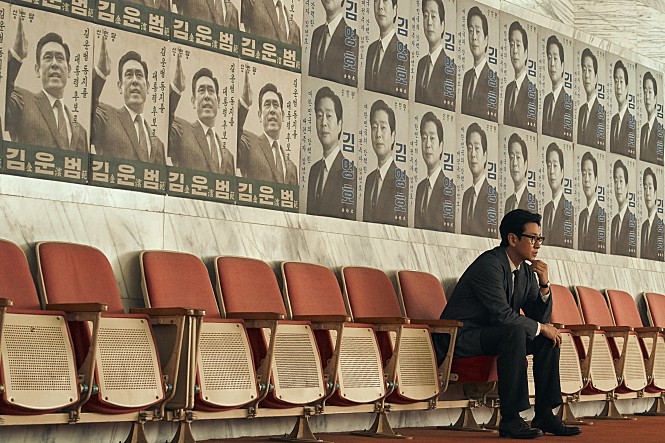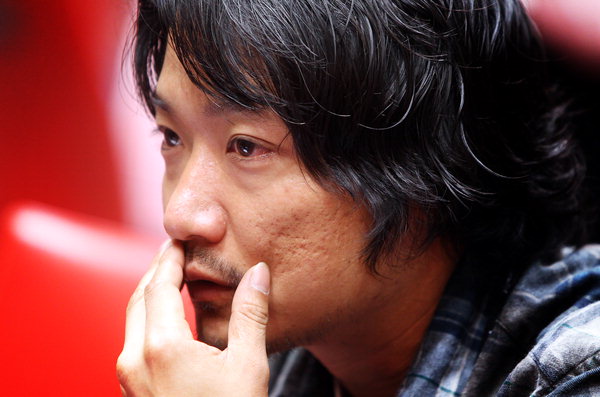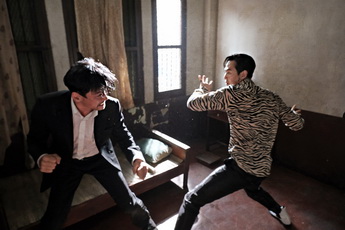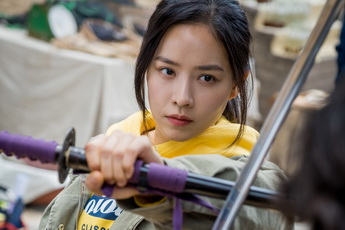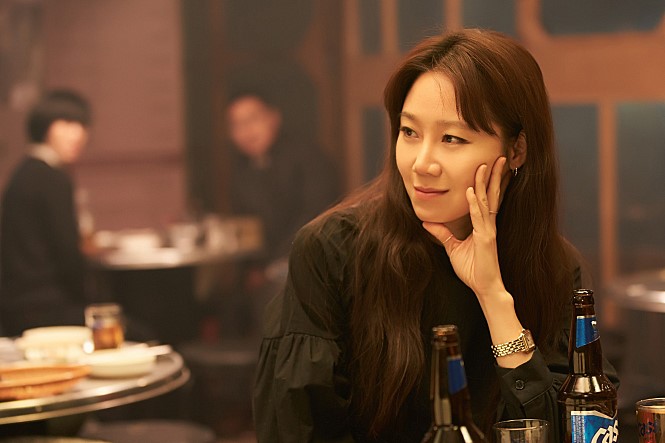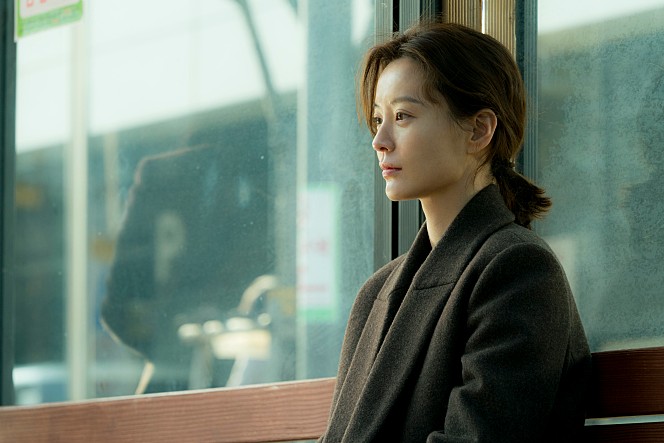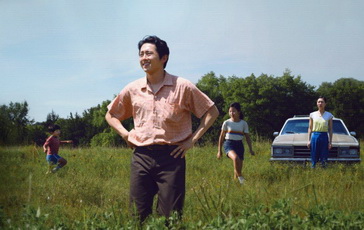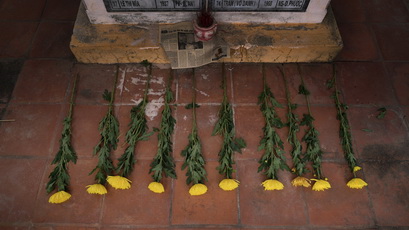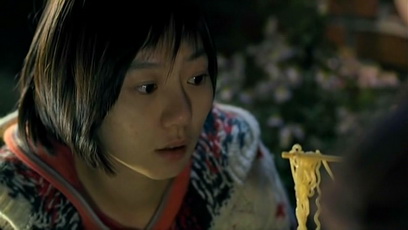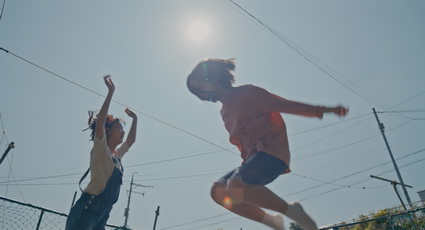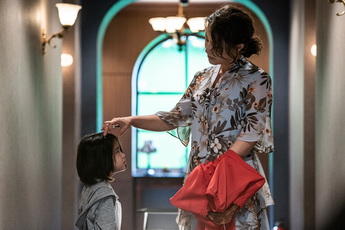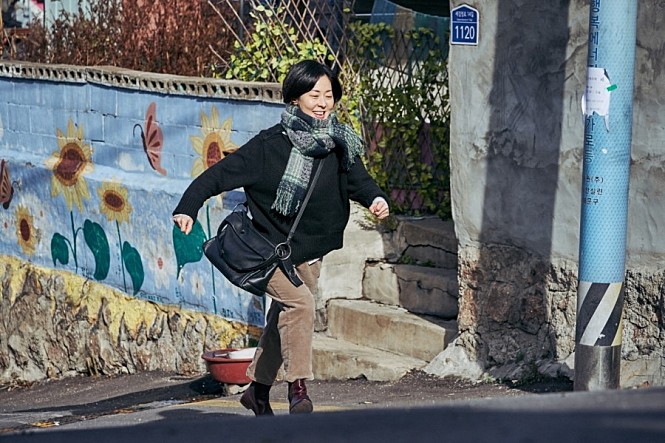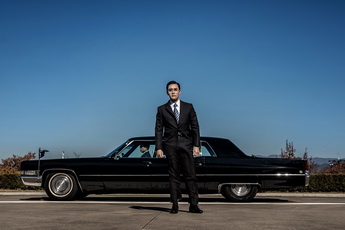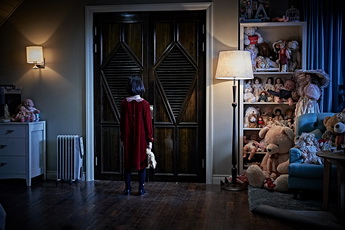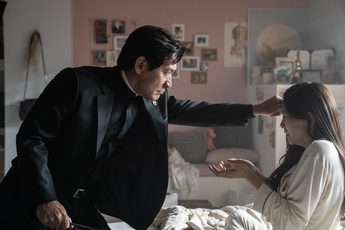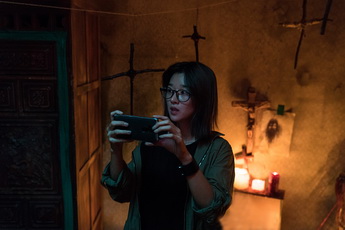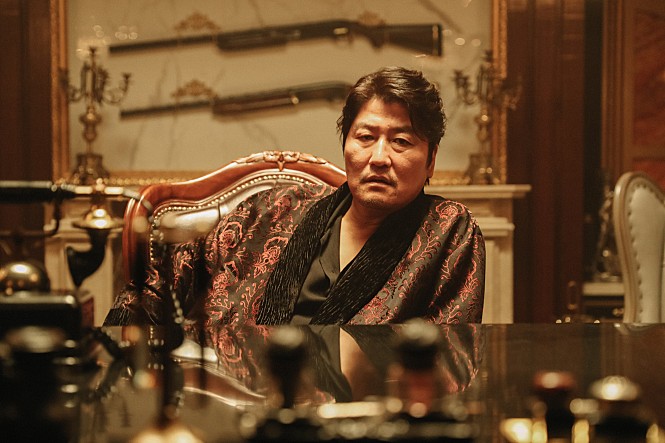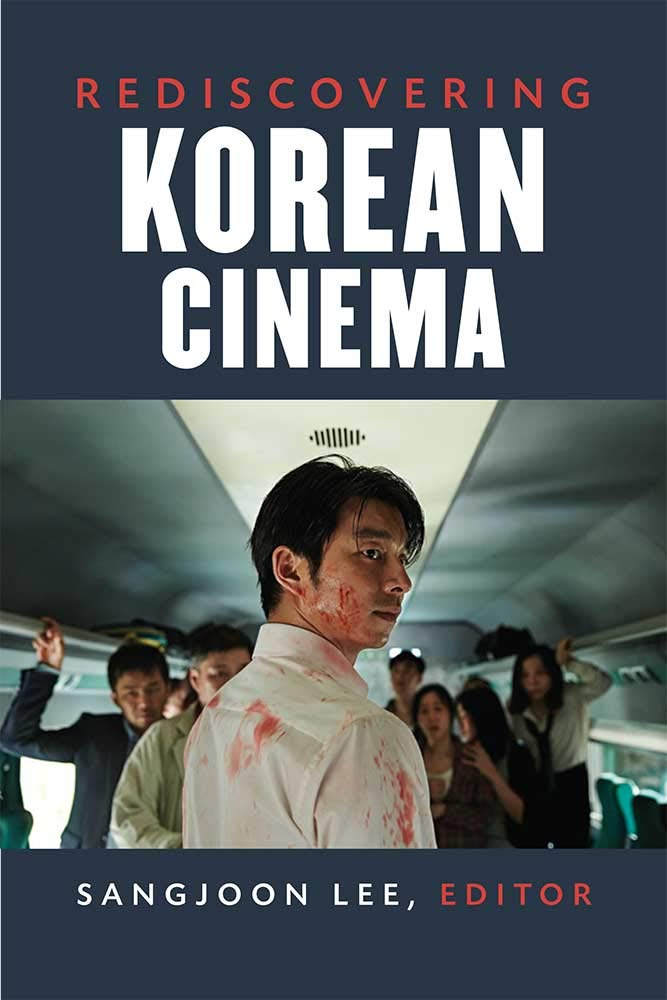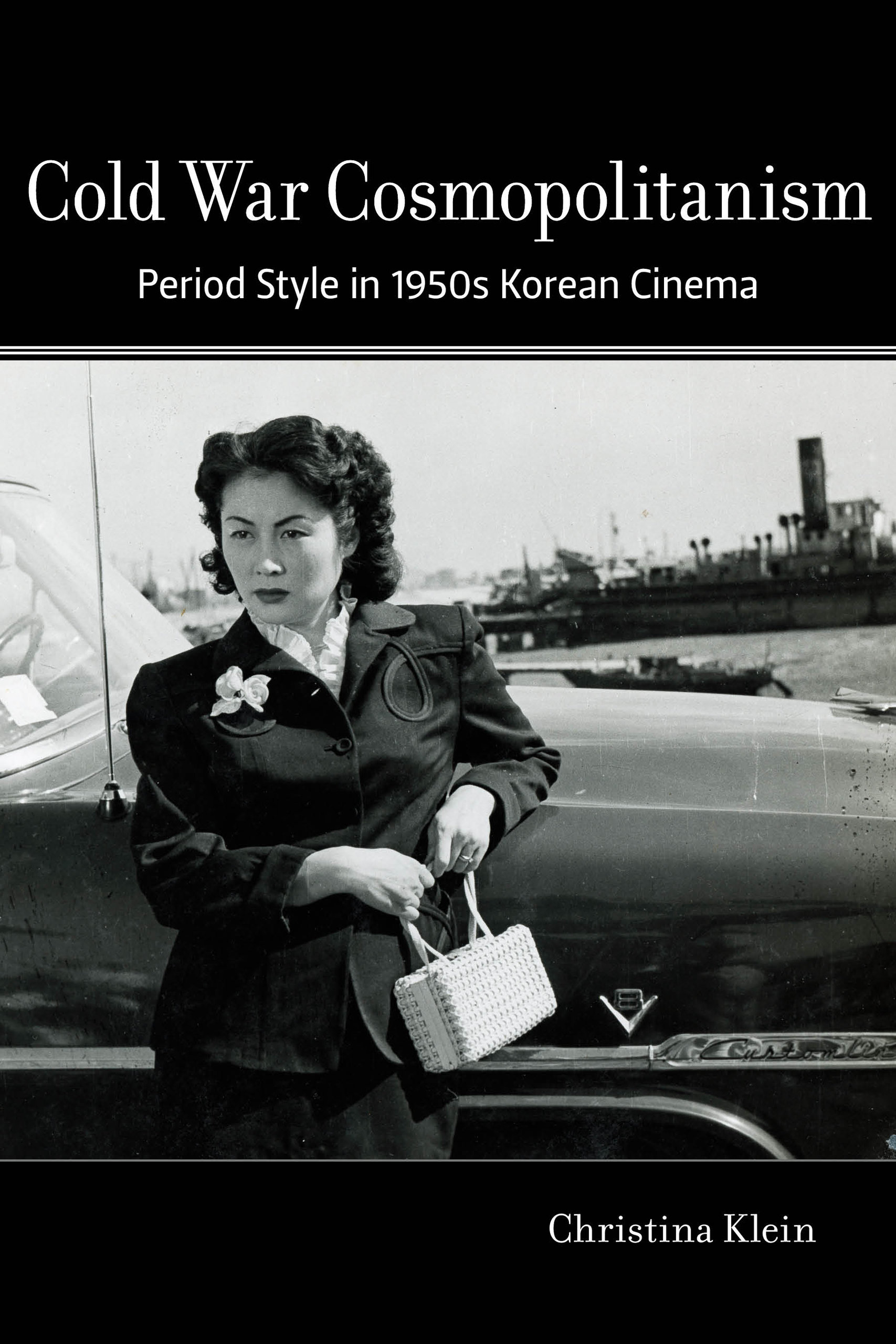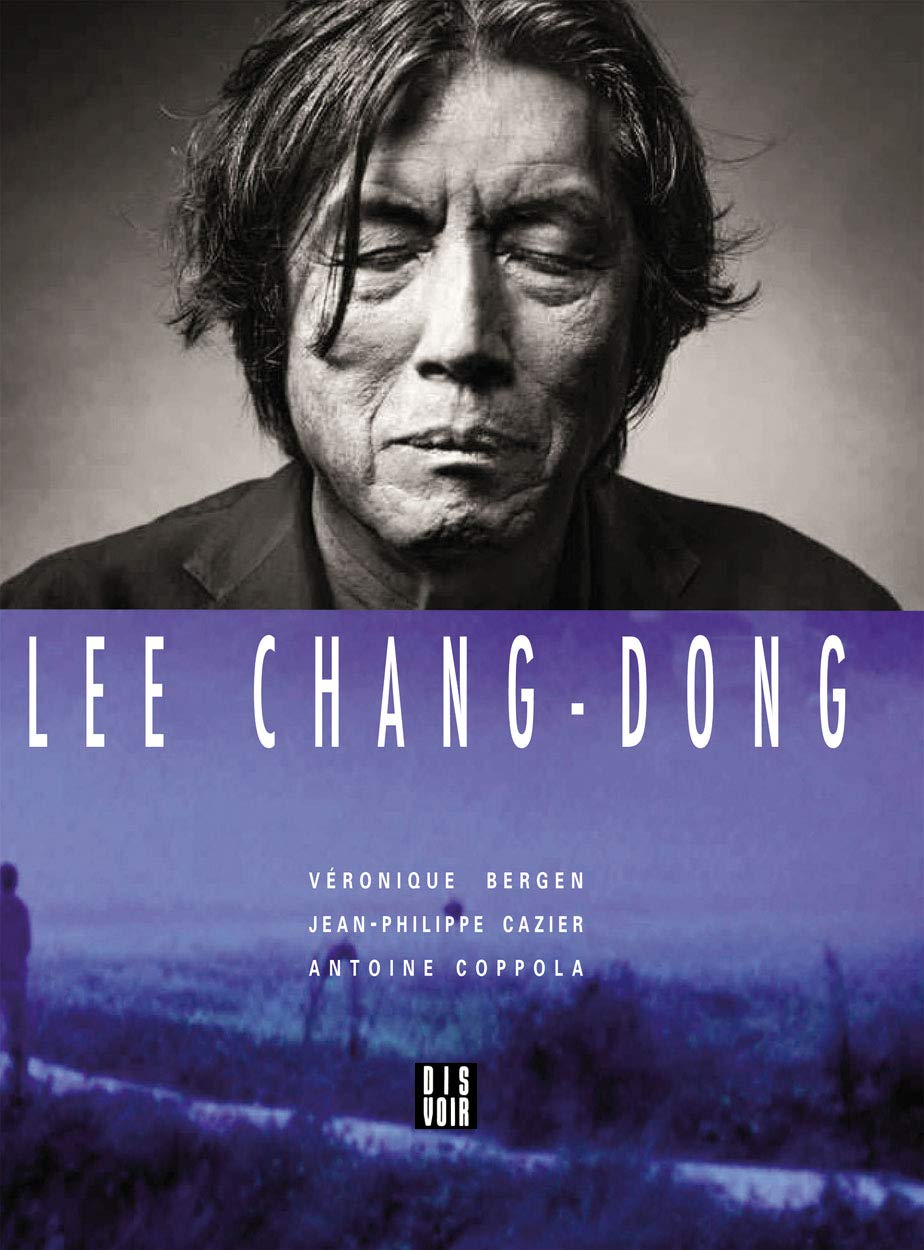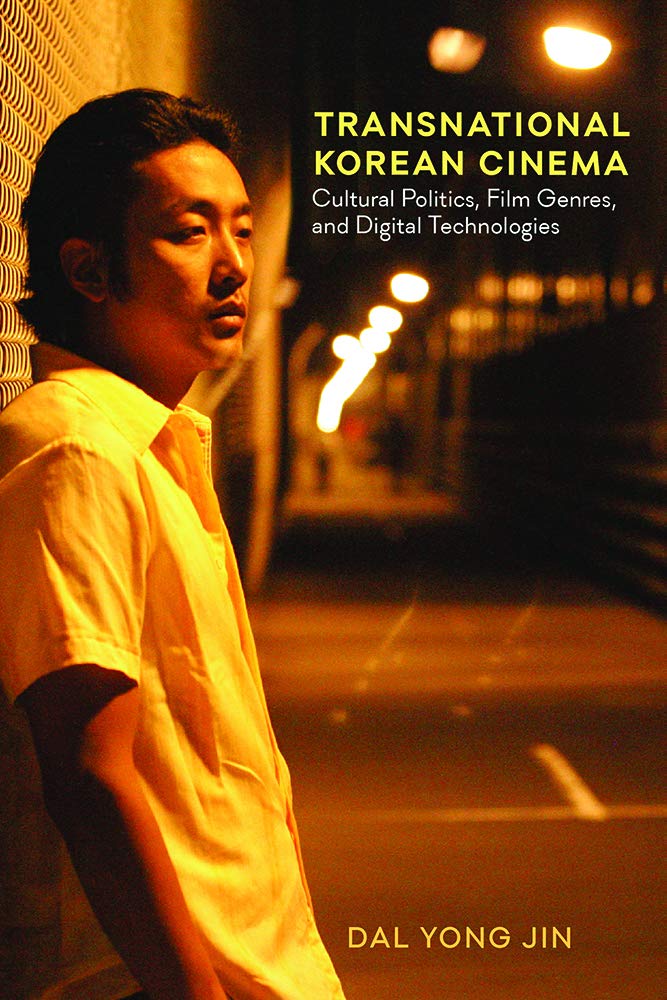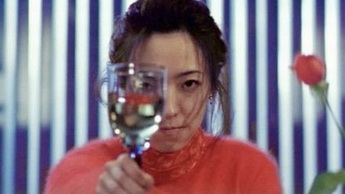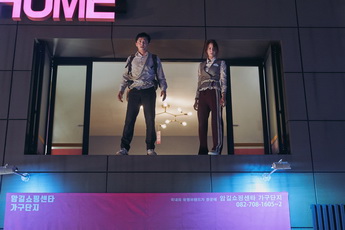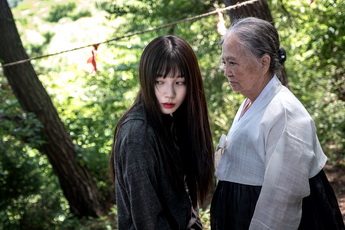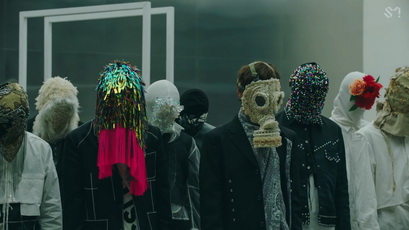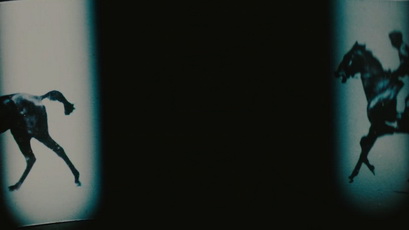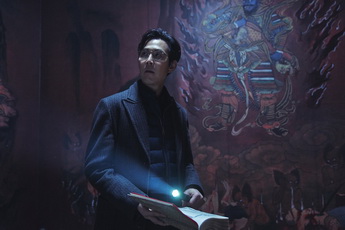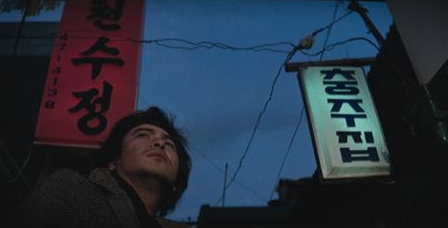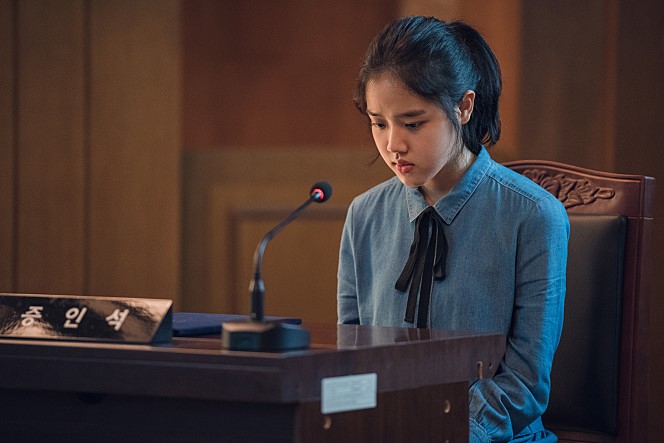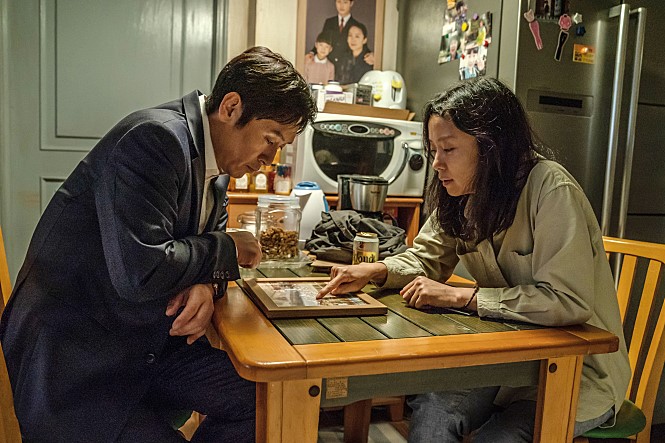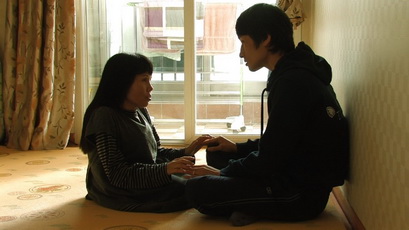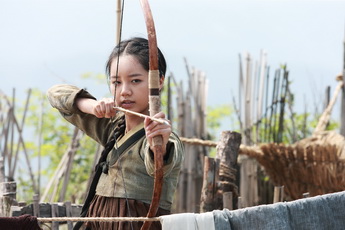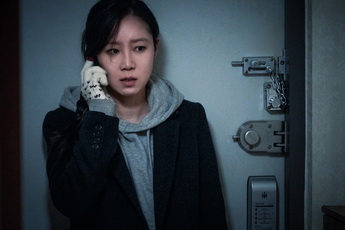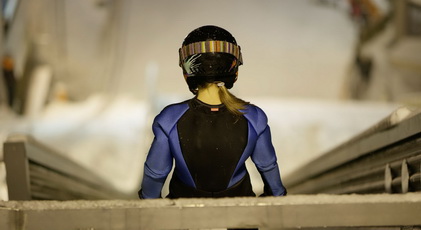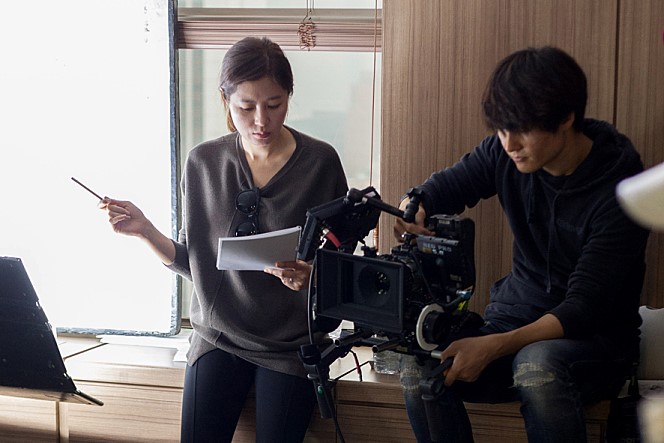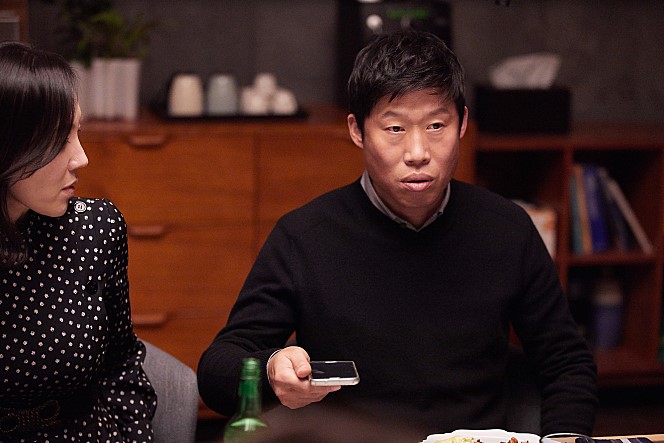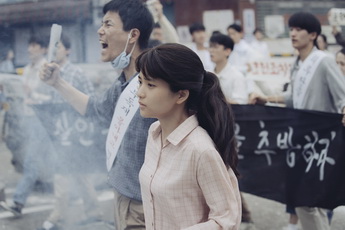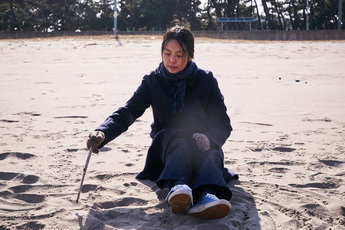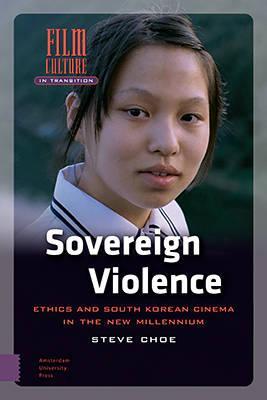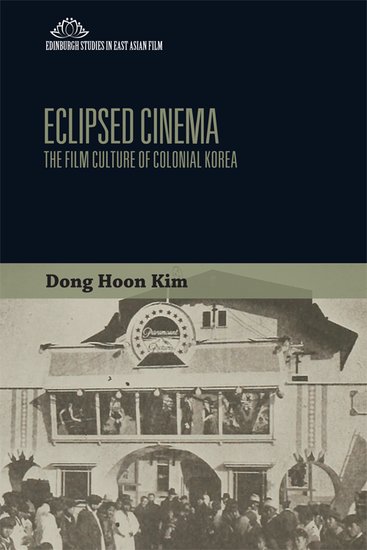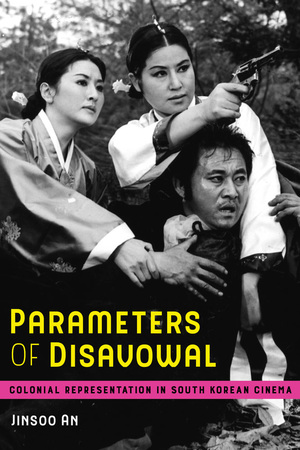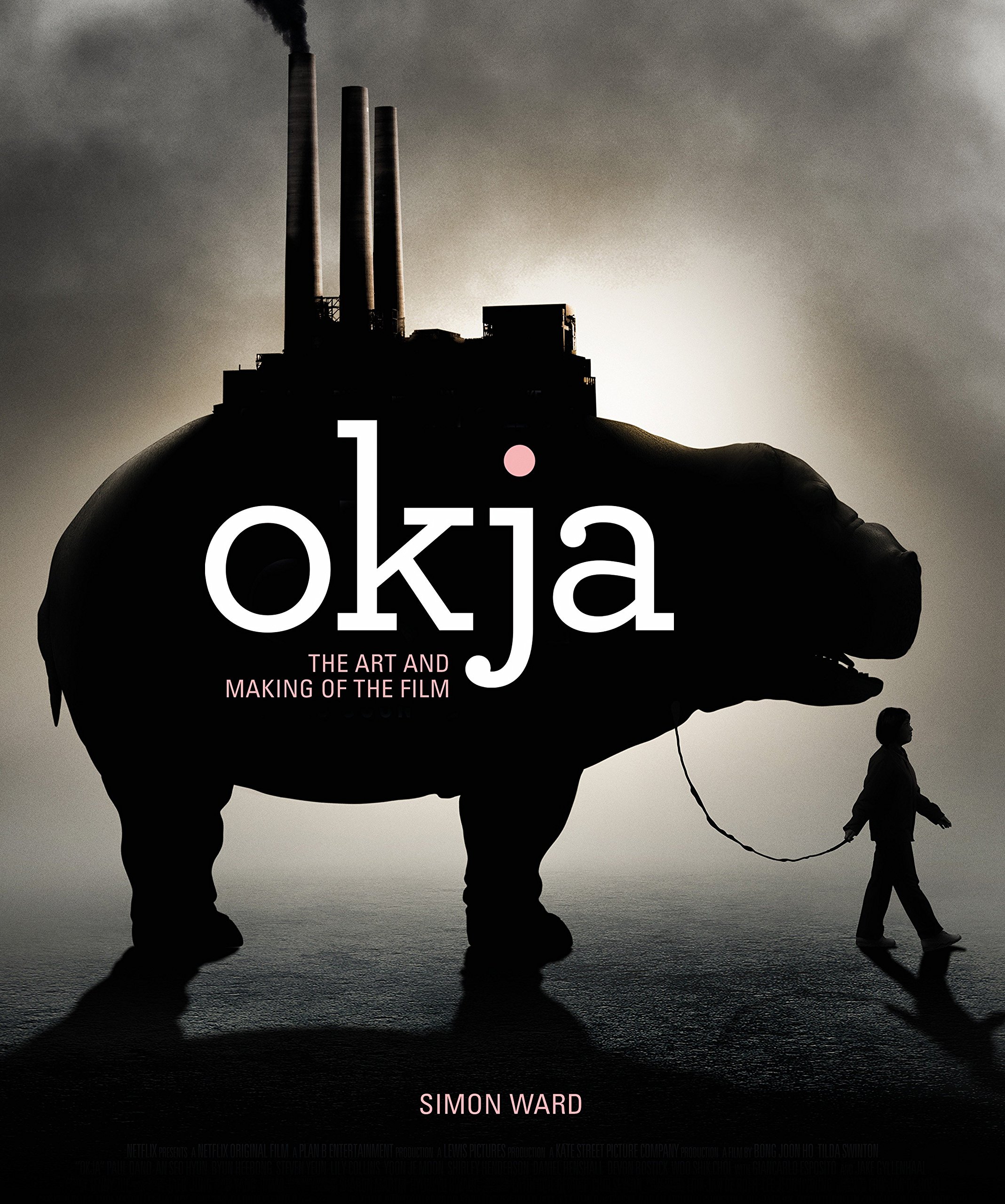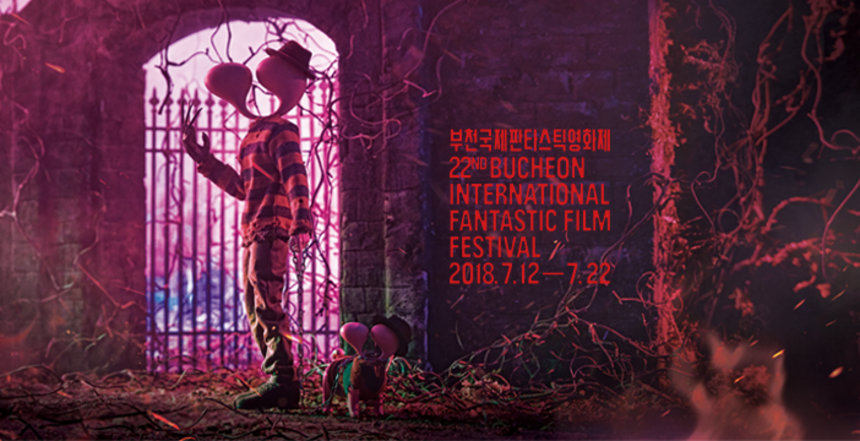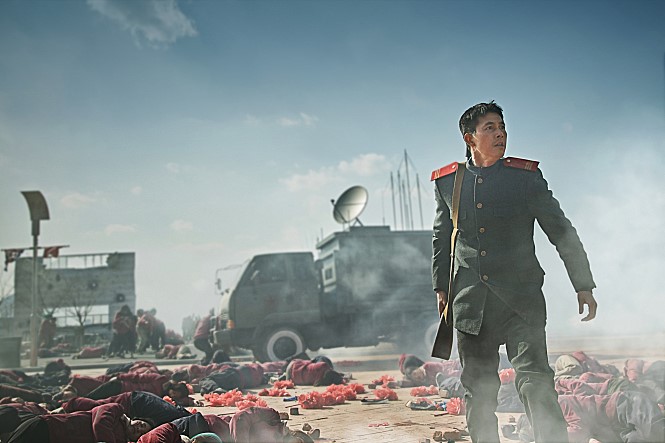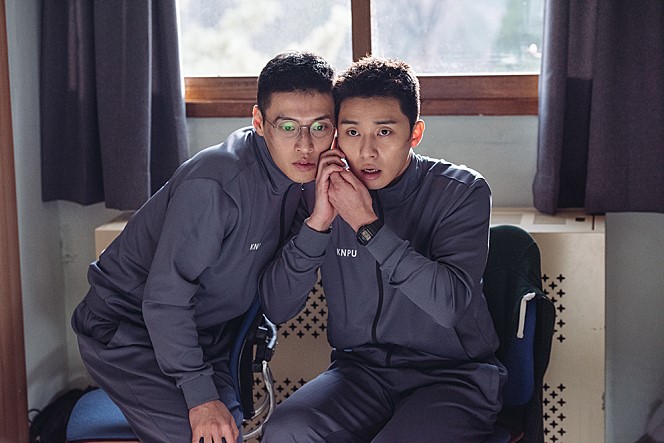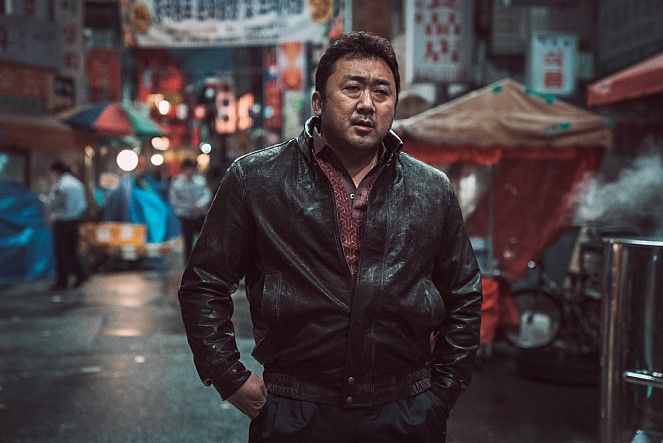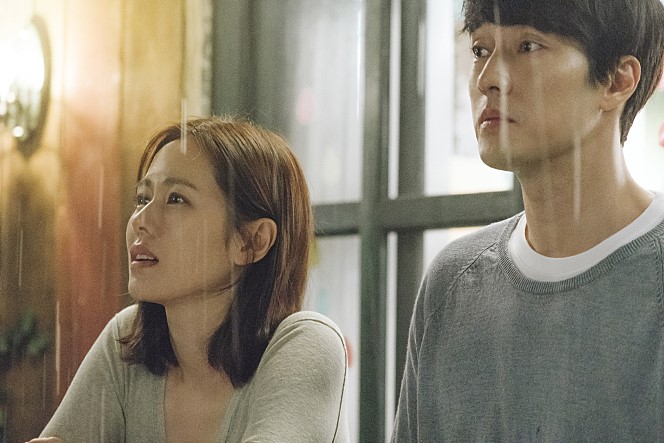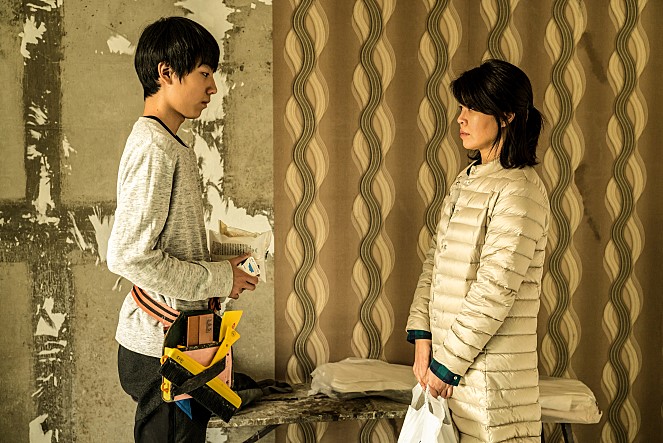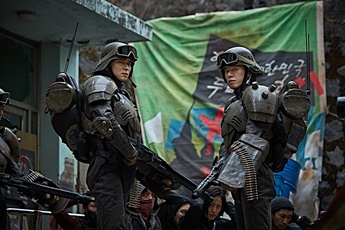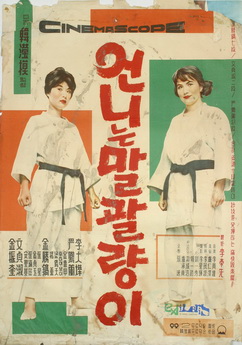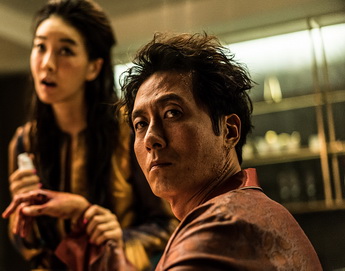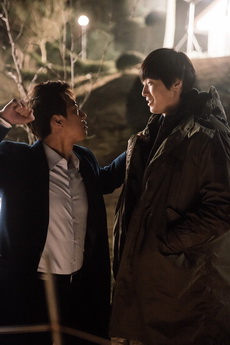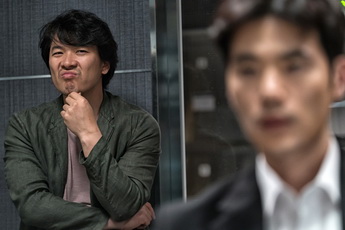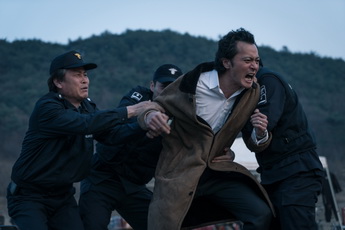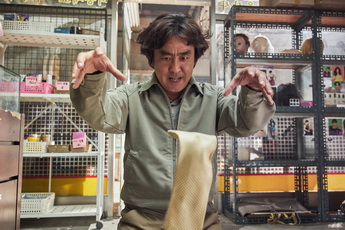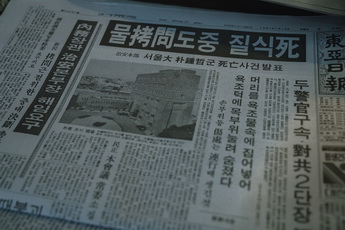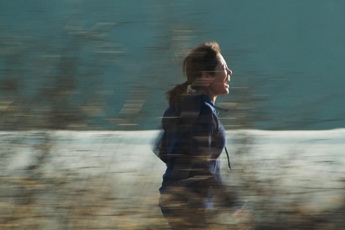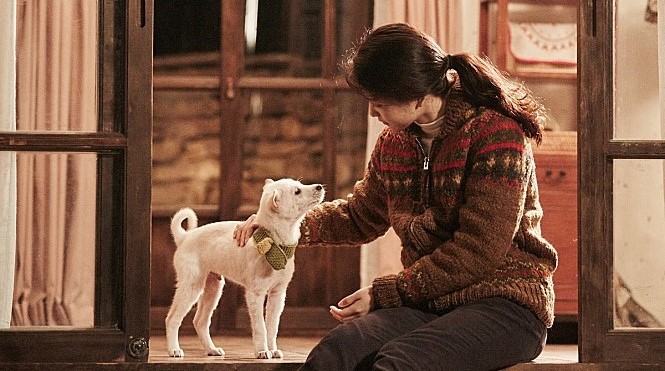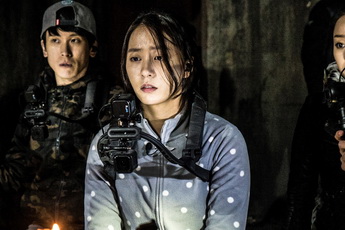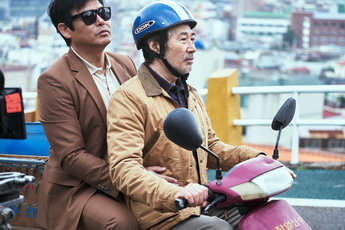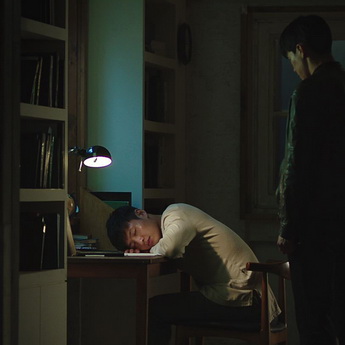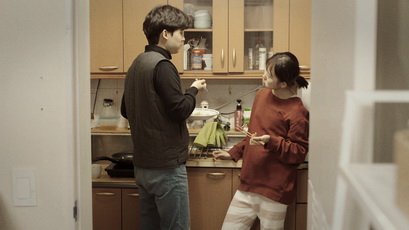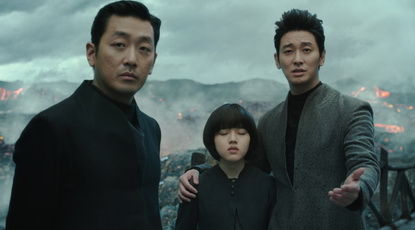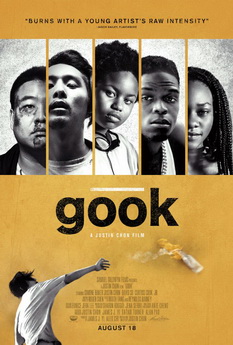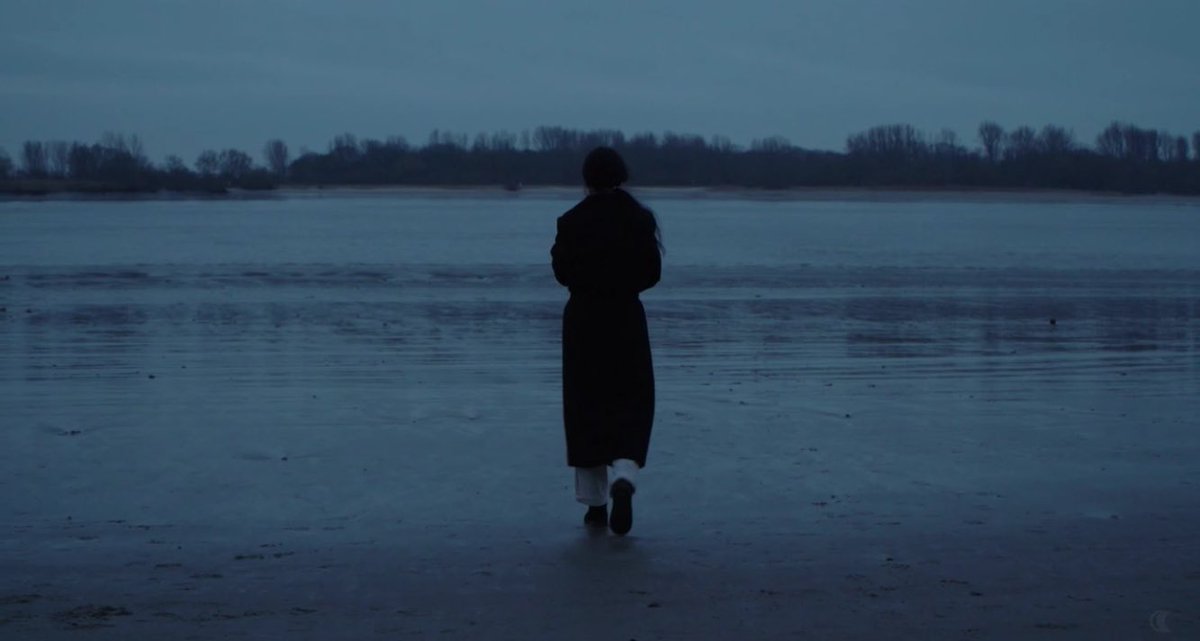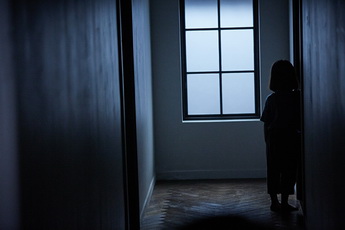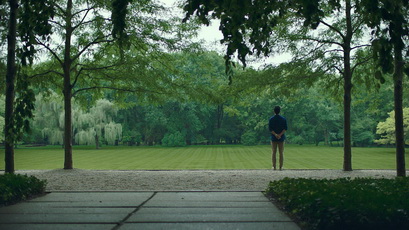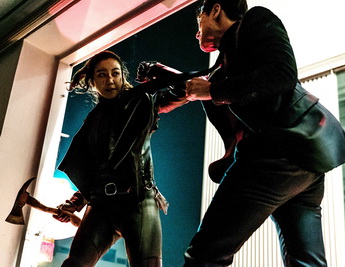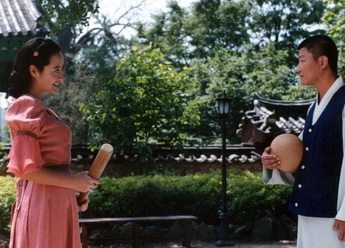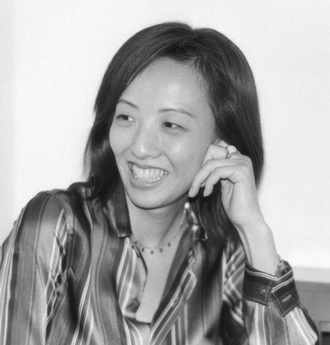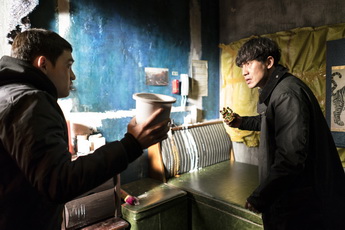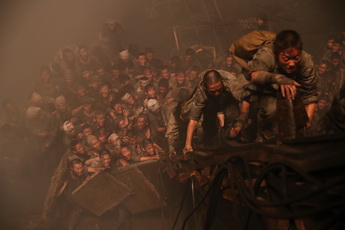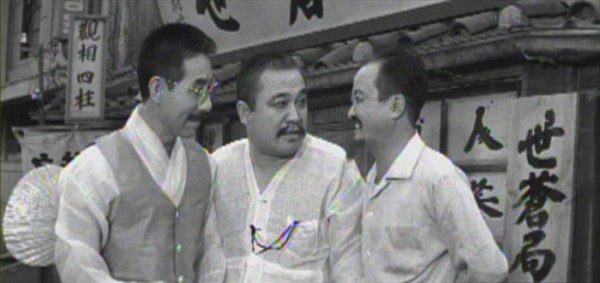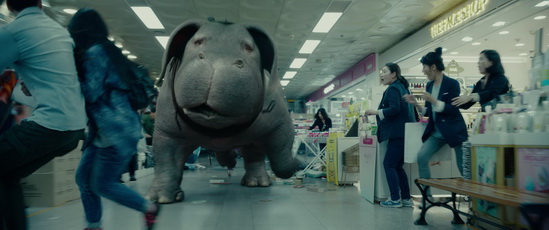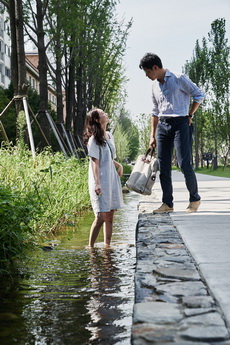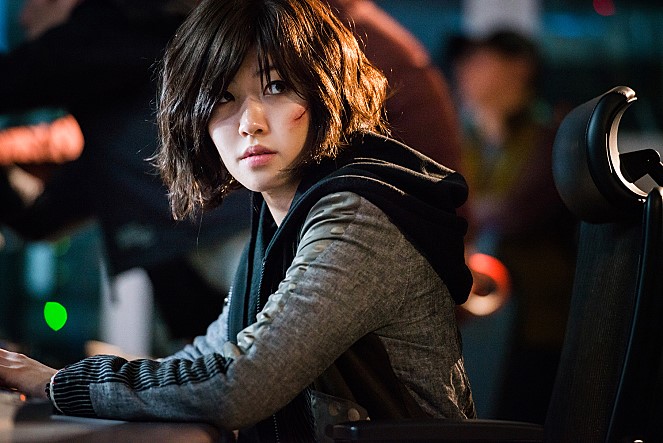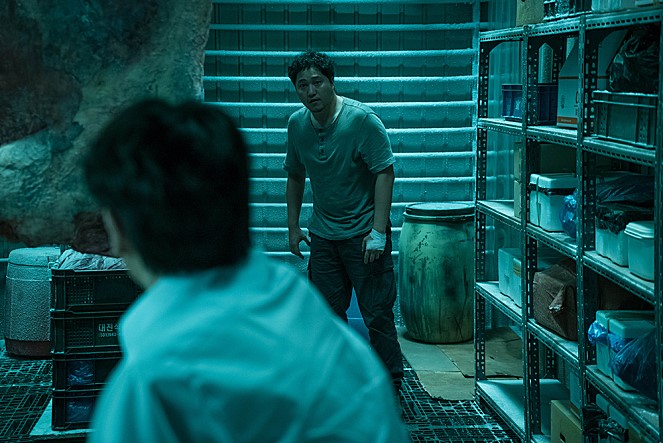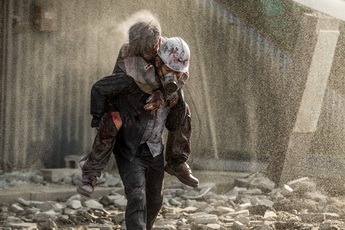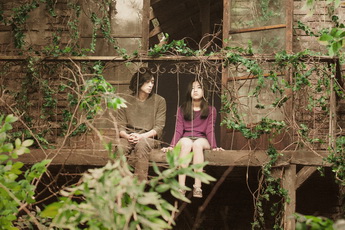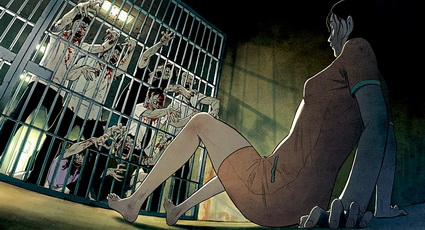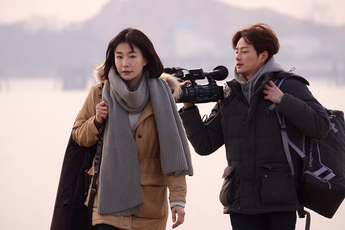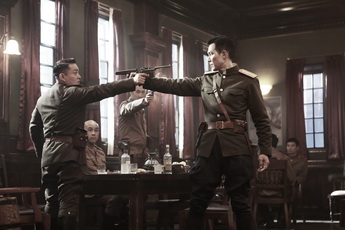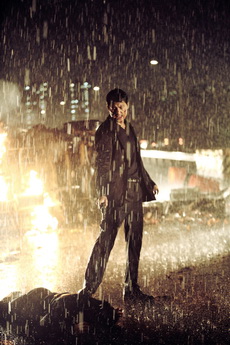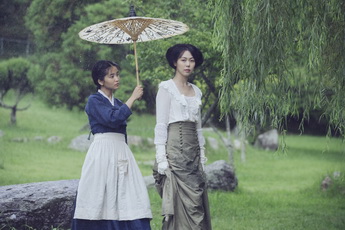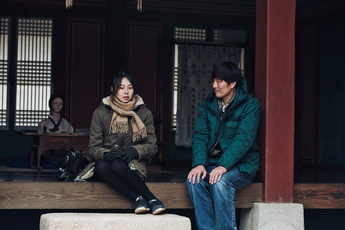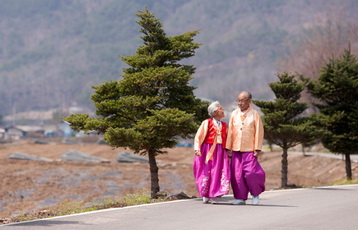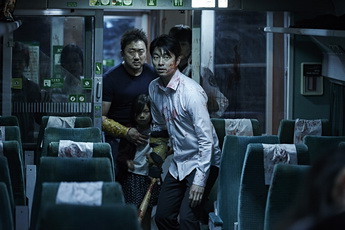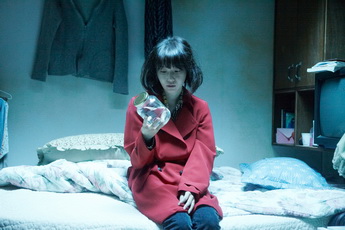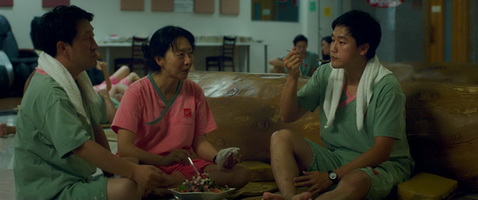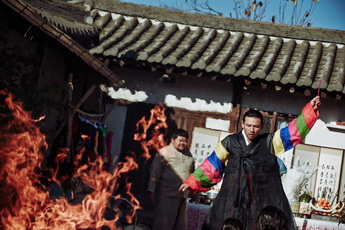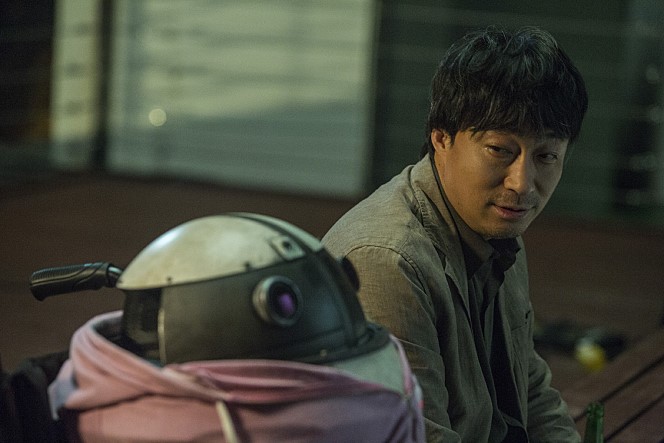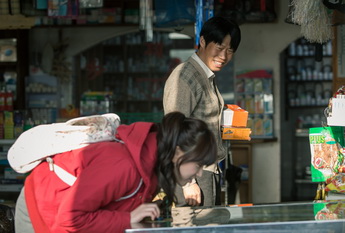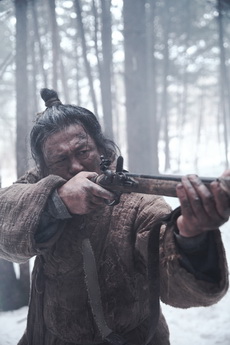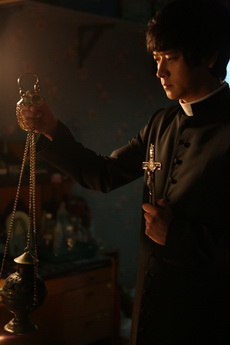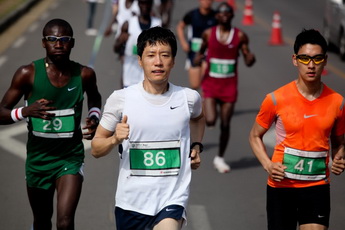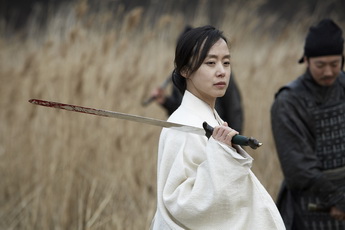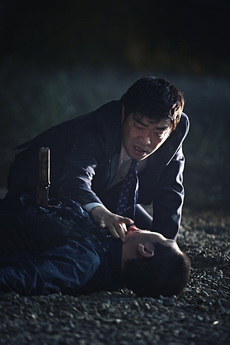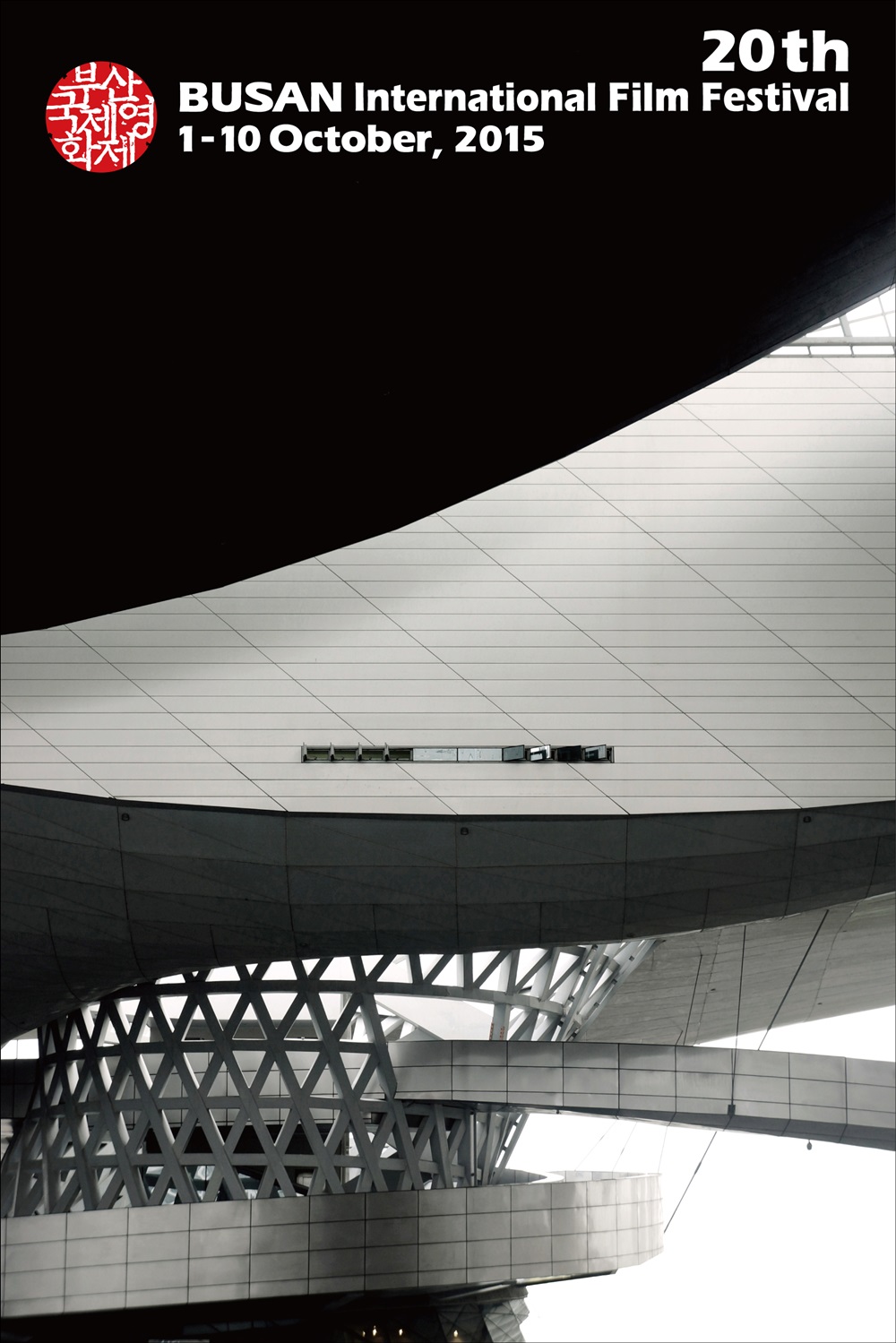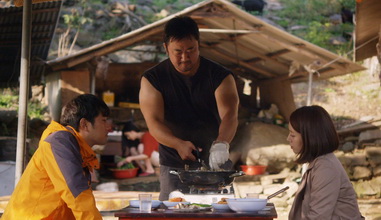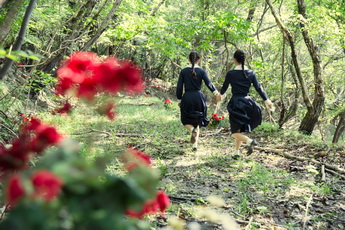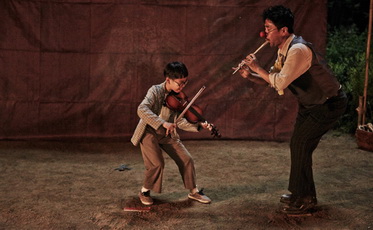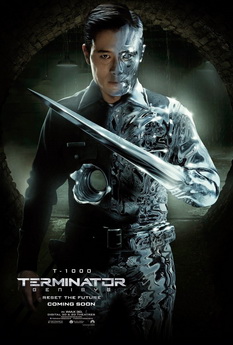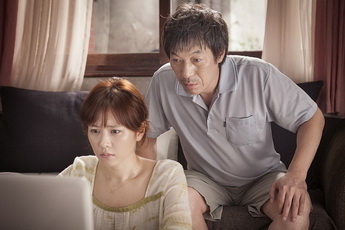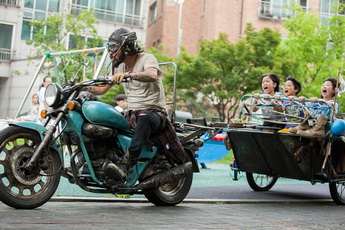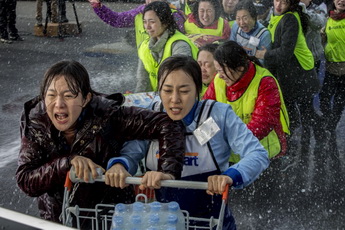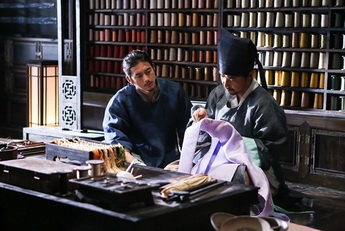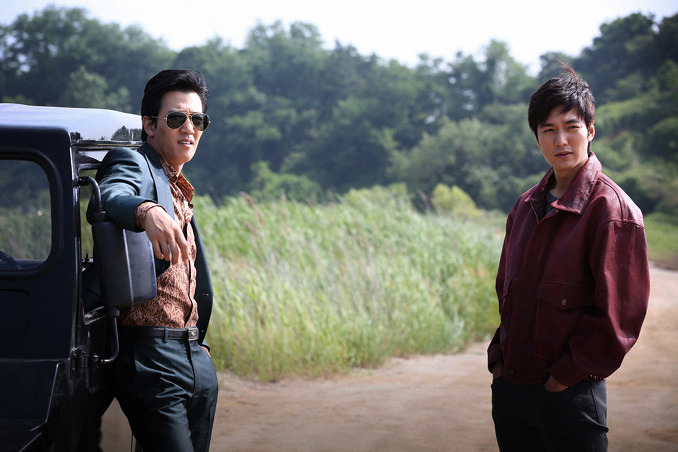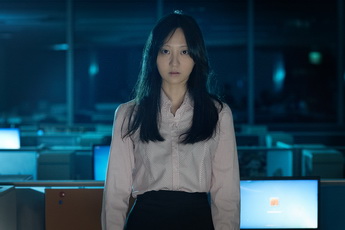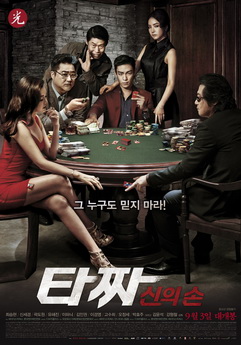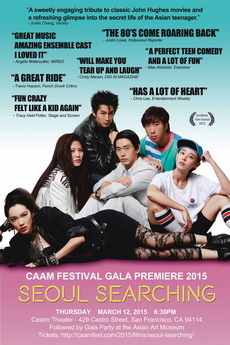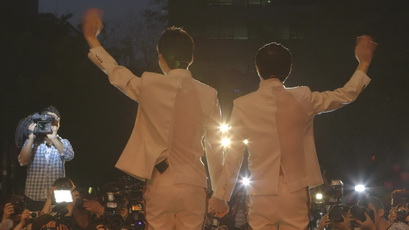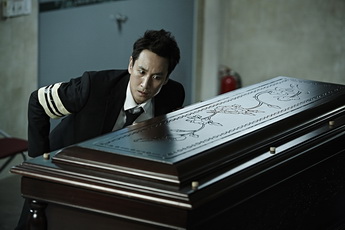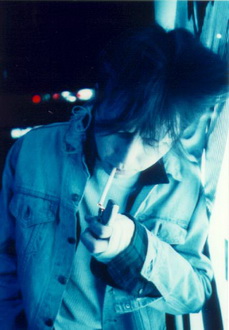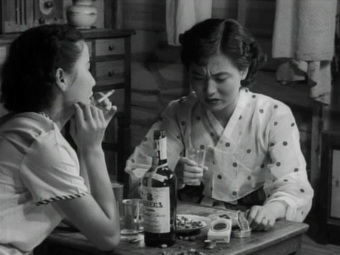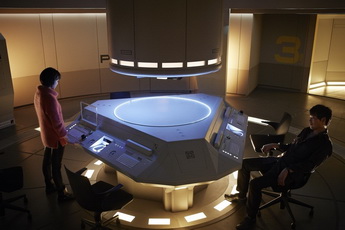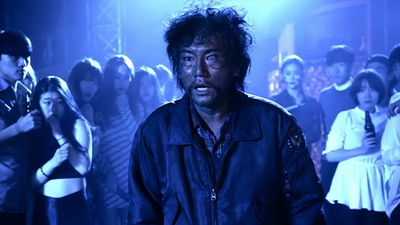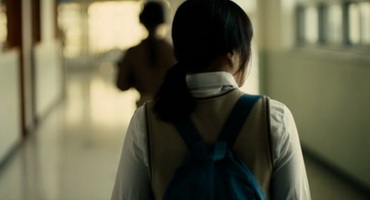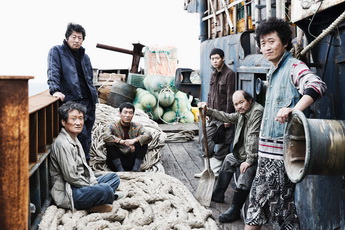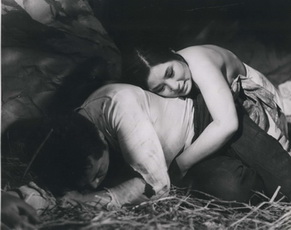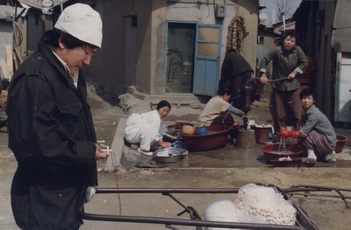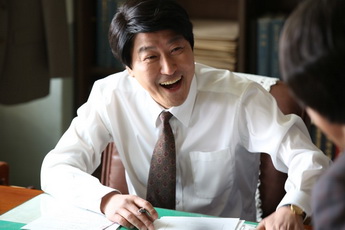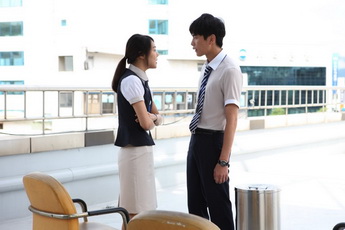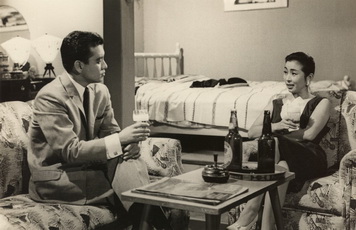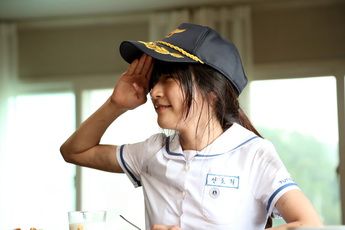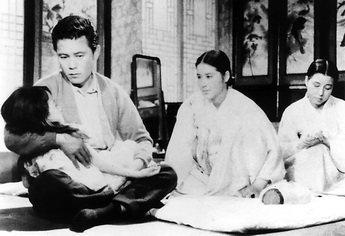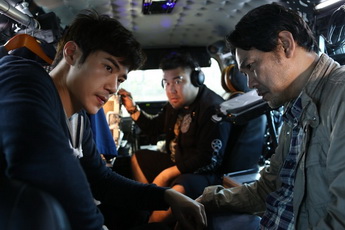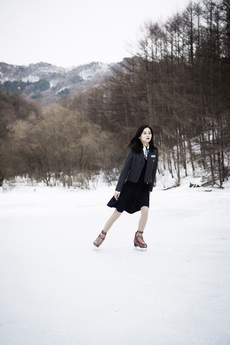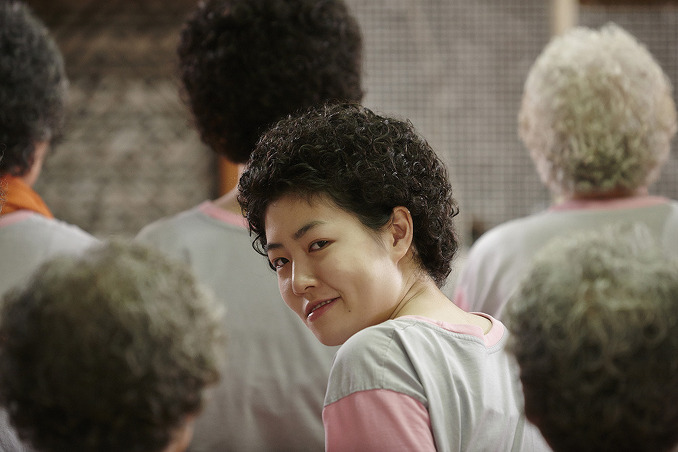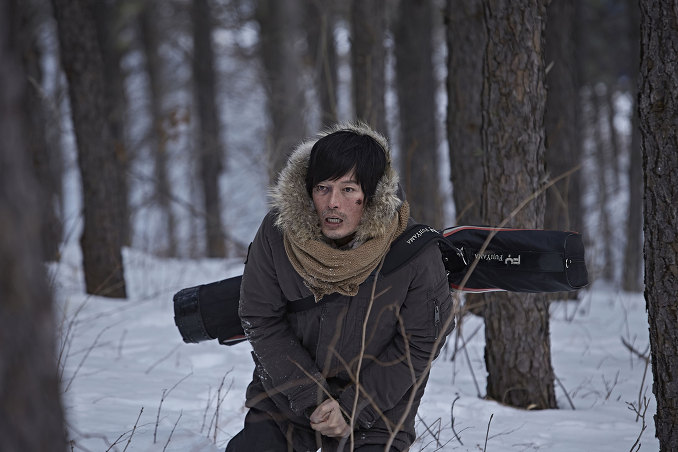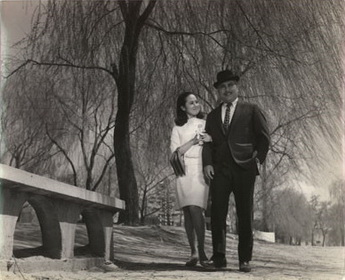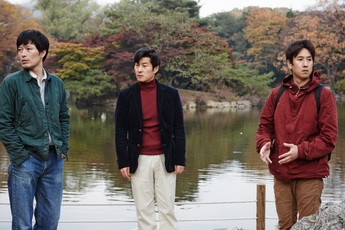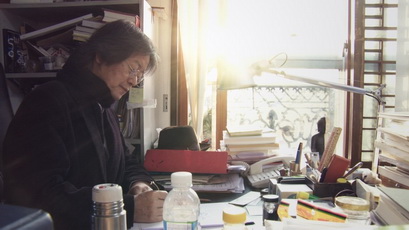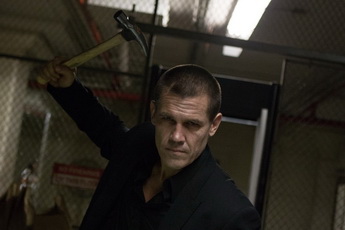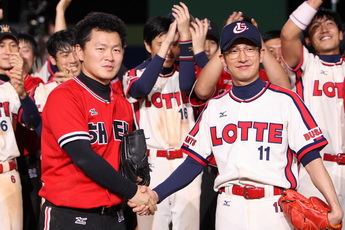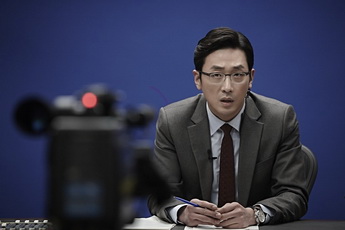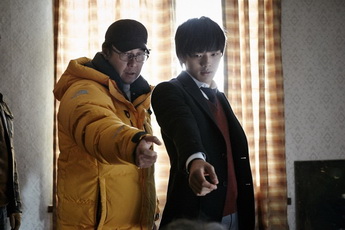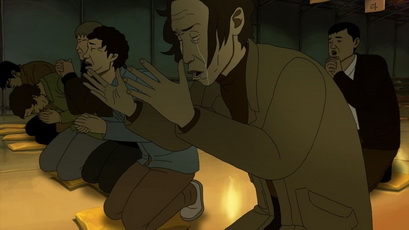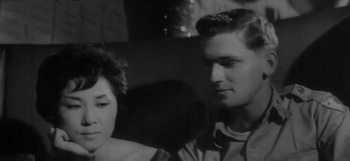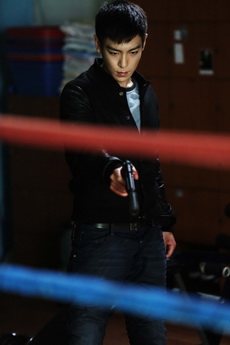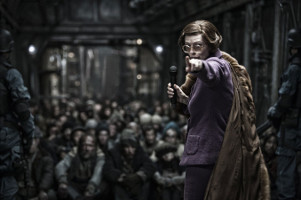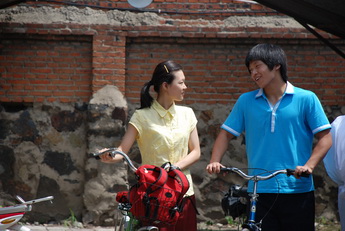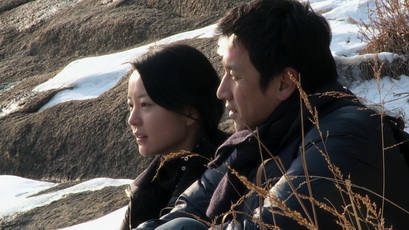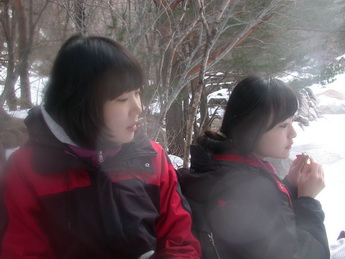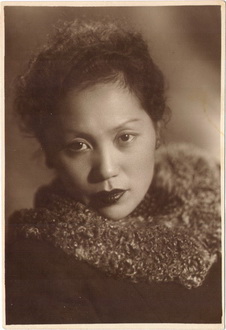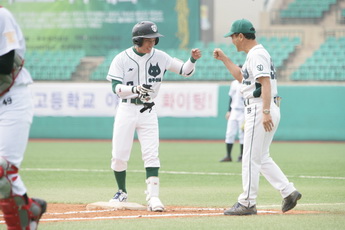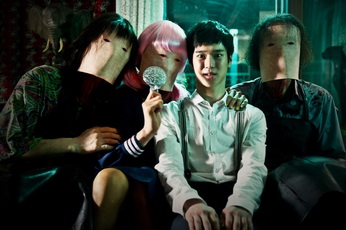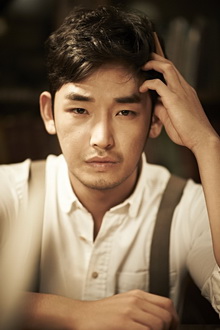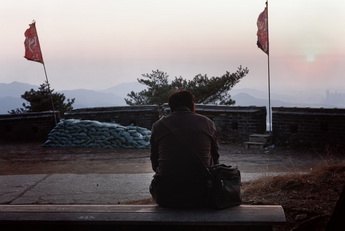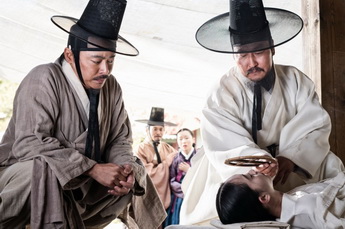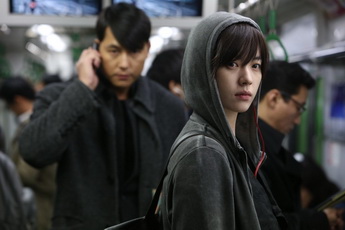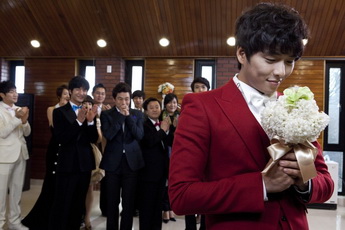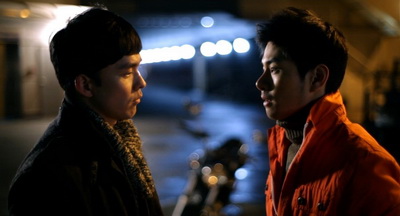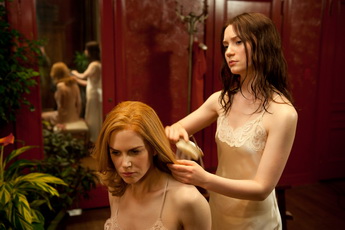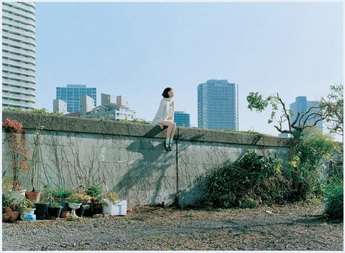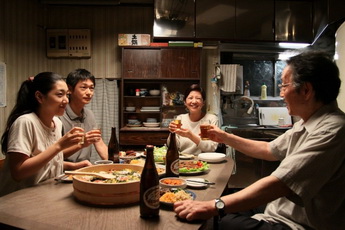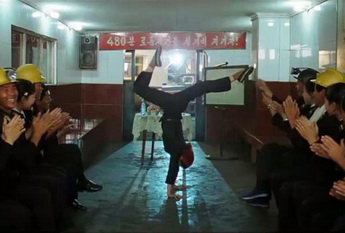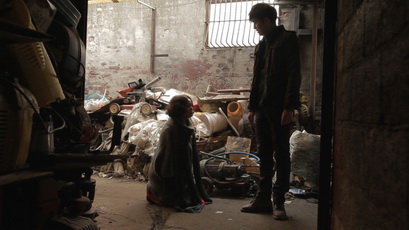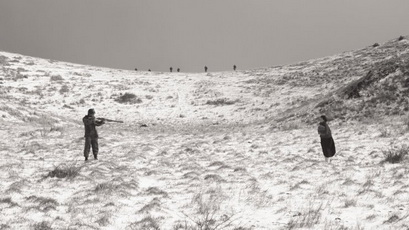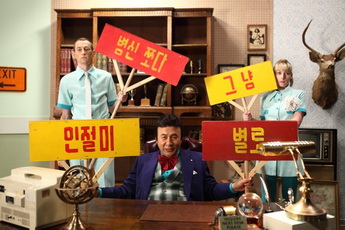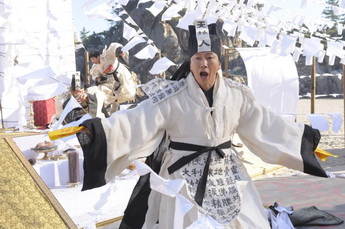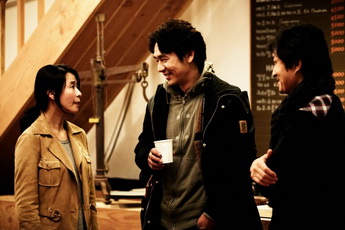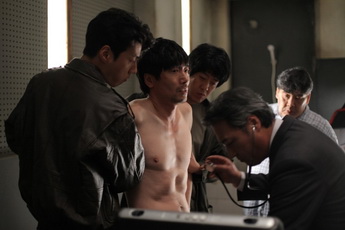Site Updates
Darcy has added three new reviews from 2024, all films that screened at the recent Udine Far East Film Festival: the critically-acclaimed novel adaptation Love in the Big City, director Yang Woo-suk's first foray into family comedy About Family, and the award-winning independent film The Land of Morning Calm.
The 2025 page has (finally) been added, with two reviews by Darcy: the occult film Dark Nuns starring Song Hye-kyo; and the intriguing new animated feature The Square, about a clandestine romance in North Korea.
Happy New Year! We start 2025 with Adam's review on The Harbor Lights (2024), veteran Japanese TV director Adachi Mojiri's theatrical debut about a third-generation Zainichi Korean coping with her multi-layered pains.
Kyu Hyun reviews two horror films from the 2024 Bucheon International Fantastic Film Festival: Doombung: The Puddle, a regional portmanteau film, and The Shrine, a Korean-Japanese co-produced occult movie.
Kyu Hyun reviews two entries from the 2024 Bucheon International Fantastic Film Festival: The Tenants, a Kafkaesque surrealistic black comedy, and You Will Die in 6 Hours, a mystery thriller based on the Japanses novel by Takano Kazuaki.
Two more new books about Korean cinema have been added to the Books Page. One is Jihoon Kim's groundbreaking study of Korean documentaries, Activism and Post-activism: Korean Documentary Cinema, 1981-2022 (2024), and the other is Andrew David Jackson's The Late and Post-Dictatorship Cinephilia Boom and Art Houses in South Korea (2023).
The 2024 page is now up, with three reviews by Darcy: the smash occult hit Exhuma by director Jang Jae-hyun; Don Lee's latest release in the highly successful Roundup series, The Roundup: Punishment; and director Park Young-ju's second feature Citizen of a Kind, based on a real-life voice phishing operation.
No less than 11 books about Korean cinema were published in 2022 and 2023, and the Books Page has been updated to include them. These include Kyung Moon Hwang's Fate and Freedom in Korean Historical Films (2023); Hieyoon Kim's Celluloid Democracy: Cinema and Politics in Cold War South Korea (2023), Travis Workman's Political Moods: Film Melodrama and the Cold War in the Two Koreas (2023), Molly Kim's Refocus: The Films of Yim Soon-rye (2023), Chung-kang Kim's Refocus: The Films of Kim Ki-young (2023), Hyunseon Lee's Korean Film and History (2023), Han Sang Kim's Cine-Mobility: Twentieth-Century Transformations in Korea's Film and Transportation (2022), Hyunseon Lee's Korean Film and Festivals: Global Transcultural Flows (2022), Karen Han's Bong Joon Ho: Dissident Cinema (2022), Soyoung Kim's Korean Cinema in Global Contexts: Post-Colonial Phantom, Blockbuster and Trans-Cinema (2022), and Dennis Lim's Tale of Cinema (2022). The first three in this list are available for free via Open Access, so check the links.
Kyu Hyun reviews two entries from the 2023 Bucheon International Fantastic Film Festival: Immortal, a micro-budgeted mockumentary SF about a mutant born out of the Hiroshima atomic bombing, and IRON MASK, a psychological sports drama that won this year's Korean Fantastic Feature Film Award.
Darcy reviews The Night Owl, a thriller set in the Joseon Dynasty that emerged as a word-of-mouth hit at the end of 2022.
Darcy reviews two releases from April: the critically-praised sports movie Rebound, and director Lee Won-suk's cult comedy Killing Romance, about the world's worst marriage.
Darcy kicks off the 2023 page with a review of Lee Hae-young's Phantom.
Adam sends his regards and shares his undying love for female-directed, feminist South Korean films in his review of Microhabitat (2018), director Jeon Go-woon's feature debut.
Kyu Hyun reviews Decision to Leave (2022), the critically acclaimed 11th feature from Park Chan-wook.
Darcy has reviewed two new local releases: mystery-thriller Confession, starring Kim Yun-jin, So Ji-sub and Nana (a remake of the 2016 Spanish film Contratiempo); and debut independent film The Apartment with Two Women, which opens in Korea after screening at film festivals around the world.
Kyu Hyun reviews another entry from the 2022 Bucheon International Fantastic Film Festival: In Dream (2022), a dream-infiltrating serial killer movie.
Kyu Hyun reviews Body Parts (2022), a five-part anthology horror film and winner of Korean Fantastic Film Award at 2022 Bucheon International Fantastic Film Festival.
Kyu Hyun reviews Woman in the White Car (2022), a classical murder mystery starring Jung Ryeo-won and winner of Korean Fantastic Actors Awards at 2022 Bucheon International Fantastic Film Festival.
Darcy has uploaded three old reviews from 2018: historical blockbuster The Great Battle, starring Zo In-sung; Ma Dong-seok action film Unstoppable; and Default starring Yoo Ah-in and Kim Hye-soo, about South Korea's financial crisis of 1997.
Anyone wishing to relive Korean cinema's trek through the pandemic years can read the three latest updates in Darcy's annual state-of-the-industry essays, written for the Udine Far East Film Festival catalogue. The page contains essays stretching back to the year 2002.
Following a special filmmaker focus at the Udine Far East Film Festival in 2021, Darcy has uploaded three reviews by director Yoon Jong-bin: his breakthrough Nameless Gangster: Rules of the Time (2012); his dark-tinged second feature Beastie Boys (2008), and the big-budget period action film Kundo: Age of the Rampant (2014).
Darcy reviews two films from autumn 2021: Lee Jang-hoon's melodrama Miracle: Letters to the President, which won the top prize at the 2022 Udine Far East Film Festival, and Perhaps Love, the feature directorial debut of the great actress Cho Eun-ji.
Darcy reviews two high-profile releases from the summer of 2021: Ryoo Seung-wan's Escape From Mogadishu, shot entirely in Morocco in the months before the pandemic, and Hostage: Missing Celebrity, a thriller in which well-known star Hwang Jung-min plays himself.
Four books about Korean cinema that were published in 2021/2022 have been added to our Books Page. These include Hye Seung Chung and David Scott Diffrient's Movie Minorities: Transnational Rights Advocacy and South Korean Cinema; Jieun Kiaer and Loli Kim's Understanding Korean Film : A Cross-Cultural Perspective; Immanuel Kim's Laughing North Koreans: The Culture of Comedy Films; and Nam Lee's The Films of Bong Joon Ho.
Darcy reviews two new releases from January: the action film Special Delivery featuring Parasite star Park So-dam, and the political drama Kingmaker from director Byun Sung-hyun, starring Sul Kyung-gu and Lee Sun-kyun.
We have uploaded Adam Hartzell's interview with director Park Jung-bum from 2011, when Park's film The Journals of Musan screened at the San Francisco International Film Festival. This interview was originally published on another site, but became a dead link, so we are making it available here.
Kyu Hyun reviews two genre films from 2020: Deliver Us from Evil, a stylish actioner starring Hwang Jung-min and Lee Jung-jae, as well as Night of the Undead, the fourth feature by the one and only writer-director Shin Jung-won.
The 2021 review page is up: Djuna reviews Three Sisters starring Kim Sun-young, Moon So-ri and Jang Yoon-ju, while Kyu Hyun reviews Slate, a low-budget wuxia fantasy film.
Darcy has uploaded three of his reviews from the second half of 2019: The House of Us by director Yoon Ga-eun, Crazy Romance by debut director Kim Han-kyul, and the film version of the acclaimed novel Kim Ji-young, Born 1982 by Kim Do-young.
Rachel reviews Minari (2020), director Lee Isaac Chung's critically acclaimed bittersweet portrayal of a Korean diaspora family in the rural US starring Steven Yeun, Han Ye-ri and Youn Yuh-Jung.
Rachel reviews Overseas (2019), South Korea-born French director Sung-a Yoon's second feature documentary shot in a training center for domestic work in the Philippines.
Rachel reviews Untold (2018), a documentary following Vietnamese survivors of massacres commited by South Korean soldiers during the Vietnam War.
Adam discusses Spring Bears Love (2003) and its use of product placement and public spaces in his in-depth essay "I Crave for Ramen: The Subversion of Product Placement in Yong Yi's Spring Bears Love."
Please welcome our new contributor Rachel Min Park and her heartfelt review on House of Hummingbird (2018), the internationally acclaimed feature debut and multi-award winner from director Kim Bora, which is playing at certain locations and also shown online through Kino Lorber in the US starting June 26, 2020.
Kyu-hyun wholeheartedly recommends director Son Jae-gon's third feature Secret Zoo (2020), a sincere and thoughtful comedy built on an absurd premise.
Kyu-hyun reviews Hotel Lake (2020), a perhaps predictable yet competent low-budget horror feature debut from Yoon Eun-kyung.
The 2020 review page is up: Darcy reviews Beasts Clawing at Straws, a slick crime film starring Jung Woo-sung and Jeon Do-yeon, and Lucky Chan-sil, an independet film about a jobless film producer's pursuit of her undaunting love of cinema. Also, Kyu-hyun reviews director Woo-Min-ho's final installment of his "trilogy of desire," The Man Standing Next and The Closet, a promising mediem-budget horror feature debut of director Kim Gwang-bin.
DJUNA reviews Vertigo (2019), a portrayal of a Korean urbanite working woman under pressure, which has nothing to do with the Hitchcok film except, perhaps, for its troubled male gaze.
Kyu Hyun reviews two opposite ends of horror from 2019: The Divine Fury, a big-budget run-of-the-mill horror action franchise-wannabe and Warning: Do Not Play, a low-budget meta exploration of the genre.
Darcy has uploaded the essay Sending a Message: Korean Cinema in 2018, which was originally written for the Udine Far East Film Festival catalogue last spring.
Four new books about Korean cinema have been published in recent months, and you can get more details at our Books Page. These include the groundbreaking compilation Rediscovering Korean Cinema edited by Sangjoon Lee, as well as Christina Klein's Cold War Cosmopolitanism: Period Style in 1950s Korean Cinema; the monograph Lee Chang-dong; and Dal Yong Jin's Transnational Korean Cinema: Cultural Politics, Film Genres, And Digital Technologies.
With less than a week to go until the 92nd Academy Awards, Adam reviews the first South Korean film nominated for Best Documentary Short Oscar, In the Absence (2018), a documentary on the 2014 Sewol ferry disaster.
With the 7th anniversary of his untimley death being marked next month (Feb 2020), Adam shed new light on "Park Chul-soo: South Korea's Neglected Auteur."
Kyu Hyun reviews Exit (2019), a summer box office hit disaster action comedy with a sound mind and body.
Kyu Hyun reviews 0.0mhz (2019), a summer horror film starring Jung Eun-ji of A-pink and Lee Sung-yul of Infinite. He also reviews music videos for NCT 127's "Simon Says" (2018) and Stray Kids' "Chronosaurus" (2019).
Kyu Hyun reviews Svaha: The Sixth Finger (2019), director Jang Jae-hyun's ambitious sophomore effort yet again successfully depicting multi-religious Korean society.
Kyu Hyun reviews Lee Doo-yong's 1980 classic The Last Witness, which has been restored and released on Blu-ray (and which is described by director Ryoo Seung-wan as one of the greatest Korean movies ever).
Darcy uploads reviews of two films that recently screened at the 2019 Udine Far East Film Festival: courtroom drama Innocent Witness (2019) by director Lee Han, and the FEFF's opening film, Birthday (2019), about families bereaved by the 2014 Sewol Ferry sinking.
Adam contemplates the intimacy of tactile language, through which a disabled couple communicates their love in Yi Seung-jun's documentary Planet of Snail (2012).
Kyu Hyun reviews two genre films of 2018: Monstrum (2018), a creature movie set in Joseon Dynasty and Door Lock (2018), a chilling thriller strongly evoking the real-life threats to contemporary Korean women.
Adam reviews Crossing Beyond (2018), a "political" documentary about 6 athletes in the 2018 PyeongChang Winter Olympics.
New contributor Melissa Kim interviewed the legendary Moon So-ri, who attended the 2018 Hawaii International Film Festival to present her directorial debut The Running Actress.
Kyu Hyun reviews Swing Kids (2018), Kan Hyung-chul's ambitious prison musical drama starring D.O. of the K-Pop group EXO.
Kyu Hyun reviews director Yoon Jong-bin's latest espionage thriller based on the real-life story of The Spy Gone North (2018).
Darcy contributes a review of Intimate Strangers (2018), about an ordinary dinner party that turns into a tense baring of secrets.
Darcy has uploaded 16 years' worth of state-of-the-industry essays originally written for the Udine Far East Film Festival catalogue. Someone with a lot of time on their hands could read through everything, 2002 to 2017, or readers could just start with the most recent piece, "Making Amends: Korean Cinema in 2017".
Adam continues his journey into the Hongian world with List (2011), a short film Hong Sangsoo made right after In Another Country with some of the same crews and actors, and On the Beach at Night Alone (2017), an extra self-reflective piece starring Kim Min-hee.
The page devoted to Books About Korean Cinema has been given an extensive and long-overdue update, including some very recent publications. If there are any books that you think should be added to this page, send me an email!
Better late than never is the motto for this year's Bucheon International Fantastic Film Festival Report, which features contributions by Kyu Hyun and Darcy. The lateness is all Darcy's fault, but we hope you enjoy "catching up" with the festival a couple months after the fact.
Three more reviews from Darcy, as he updates and uploads some of his older texts from the Udine Far East Film Festival catalogue: the big-budget political thriller Steel Rain (2017), about tensions with North Korea; police academy drama Midnight Runners (2017), and the unexpected box office hit The Outlaws (2017), starring Ma Dong-seok.
Darcy reviews two films by debut directors: the melodrama Be With You, which emerged as a decent-sized hit earlier this year; and the critically acclaimed independent film Last Child, which opens at the end of August after its premiere at the 2017 Busan International Film Festival.
Kyu Hyun reviews Illang: The Wolf Brigade (2018), Kim Jee-woon's highly anticipated remake of Oshii Mamoru's classic Japanese animation.
Adam reviews My Sister is a Tomboy (1961), Han Hyung-mo's disturbing yet interesting comedy on gender (non-)conformity.
Kyu Hyun reviews Believer (2018), Lee Hae-young's box-office smash remake of Johnny To's harrowing Drug War, starring Cho Jin-woong and Ryu Jun-yeol, and True Fiction (2018), a political satire-cum-mystery thriller starring O Man-seok and Ji Hyun-woo.
Kyu Hyun reviews The Vanished (2018), the South Korean remake of the Spanish mystery thriller, The Body, starring Kim Kang-woo and Kim Sang-kyung.
Kyu Hyun reviews two 2018 films starring Ryu Seong-ryong: Seven Years of Night, also starring Jang Dong-gun and based on a bestselling mystery-thriller, and Psychokinesis, Yeon Sang-ho (Train to Busan)'s newest SF fantasy.
Darcy reviews the acclaimed hit film 1987: When the Day Comes (2017) and the low-budget independent debut The Running Actress (2017) by directors Jang Joon-hwan and Moon So-ri, respectively (who happen to be married to each other).
♠ The 2018 page is up, with a new review by Darcy of the appealing Little Forest (2018), and Kyu Hyun's review of the breakout low-budget horror film Gonjiam: Haunted Asylum (2018), by Epitaph director Jeong Beom-shik.
♠ Kyu Hyun reviews The Chase (2017), a comic thriller starring Baek Yun-shik and Seong Dong-il based on a hit web comic series Aridong Last Cowboy, and Forgotten (2017), a mystery thriller in which a young man begins to suspect that his older brother has been secretly replaced by a double.
♠ Djuna reviews The First Lap (2017), Kim Dae-hwan's sophomore film and winner of the Best Emerging Director prize at 2017 Locarno Festival.
♠ Kyu Hyun reviews Along with the Gods, a fantasy action blockbuster starring Cha Tae-hyun and Ha Jung-woo, which has turned out to be the biggest box office hit of 2017.
♠ Adam reviews Justin Chon's sophomore feature Gook (2017), an interethnic drama set during 1992 L.A. riots and the winner of the annual Kiehl's Someone To Watch Award.
♠ Darcy has uploaded his top ten list for 2017.
♠ Kyu Hyun reviews Heart Blackened (2017), a remake of a 2013 Hong Kong courtroom thriller directed by Jung Ji-woo and starring Choi Min-shik.
♠ Kyu Hyun reviews one of 2017's more successful horror films, The Mimic, starring Yeom Jung-ah.
♠ Adam reviews Columbus (2017), feature debut from renowned video essayist Kogonada.
♠ Kyu Hyun reviews the ultra-violent action-thriller The Villainess (2017) starring Kim Ok-vin, which opens in select US theaters in August 25, 2017.
♠ Four new articles! First, Adam provides his view on Korean baseball films in 21st century and his interview with director Yang Yong-hi of Dear Pyongyang and Our Homland fame. Meanwhile, Kyu Hyun reviews the black comedy Room No. 7 (2017), starring Shin Ha-kyun and D. O. of the K-pop group EXO and The Battleship Island (2017), Ryoo Seung-wan's highly anticipated and controversial summer blockbuster.
♠ Darcy uploads a review of the classic 1961 comedy Under the Sky of Seoul, featuring almost every major star of its era.
♠ Darcy and Kyu Hyun have submitted a report from the 21st Bucheon International Fantastic Film Festival.
♠ Kyu Hyun reviews Okja (2017), Bong Joon Ho's latest film released simultaneously online and in domestic theaters on June 29 by the video streaming giant Netflix.
♠ Adam reviews Yourself and Yours (2016), the 18th feature film by Hong Sangsoo.
♠ The 2017 page is (finally) up, with Darcy's review of the video game thriller Fabricated City (2017), and Kyu Hyun's review of the creepy Bluebeard (2017) by director Lee Soo-yeon.
♠ Kyu Hyun reviews the controversial nuclear disaster film Pandora (2016), now [April 2017] available in Netflix US and other rental VOD services, and Vanishing Time (2016), Uhm Tae-hwa's unusual and bittersweet time-slip fantasy starring Kang Dong-won.
♠ Adam reviews Watcha Wearin'? (2012) a.k.a. My Phone Sex Partner, a romantic sex comedy starring Kim A-joong.
♠ Kyu Hyun reviews the animated feature film Seoul Station (2016), Yeon Sang-ho's companion piece to his live-action blockbuster horror film Train to Busan, and No Tomorrow (2016), a found-footage semi-documentary thriller starring Park Hyo-joo and Bae Seong-woo.
♠ Djuna reviews the controversial summer blockbuster and a Korean War epic, Operation Chromite (2016), and Kyu Hyun offers his take on the ultra-violent cult gangster film Asura: The City of Madness (2016), that marks fourth collaboration between director Kim Sung-soo and star Jung Woo-sung.
♠ With its upcoming North American release in October 21, 2016, Kyu Hyun reviews The Handmaiden (2016), Park Chan-wook's latest film based on Sarah Waters' Victorian lesbian romance novel Fingersmith.
♠ For the second year in a row we present a special page from the Busan International Film Festival, highlighting works by first-time Korean directors. We will continue to update the page throughout the course of the festival.
♠ Adam reviews Right Now, Wrong Then (2015), 17th feature film by Hong Sangsoo.
♠ Kyu Hyun reviews Lee Kyoung-mi's sophomore effort and already a cult favorite The Truth Beneath (2016), an unflinching film noir featuring Son Ye-jin's best performance ever.
♠ Adam reviews My Love, Don't Cross That River (2014), the highest-grossing independant documentary film of all time about the enduring love of a married couple in their twilight days.
♠ Kyu Hyun reviews Yeon Sang-ho's first live-action film Train to Busan (2016), a zombie action horror set inside the KTX bullet train traveling from Seoul to Busan.
♠ Adam writes the review of Alice in Earnestland (2015) or: Why We All Have to Learn Our Native Sign Language Even If It Ruins a Certain Plot Device. He also reviews Spa Night (2016), Andrew Ahn's feature debut about a Korean-American teenage spa worker struggling with his sexual and cultural identity.
♠ Kyu Hyun writes the review of The Wailing (2016), Na Hong-jin's highly anticipated third directorial output which happens to be a mind-warping scarefest.
♠ Darcy contributes a review of the very impressive debut film The World of Us (2016), which opens on June 16, and which many critics are comparing to the works of Kore-eda Hirokazu.
♠ Adam reviews The Beauty Inside, a romantic comedy about a person who begins every day in a different body.
♠ Darcy reviews two films that screened at the recent Udine Far East Film Festival: Sori: Voice from the Heart (2016), one of the more unusual commercial features of recent times; and Director Jung Ji-woo's independent feature Fourth Place, which examines the issue of competition in Korean society through the story of a young swimmer.
♠ Kyu Hyun reviews Fatal Intuition (2015), a '70s and '80s Euro style psychological horror film.
♠ Kyu Hyun reviews The Tiger (2015), the third directorial effort by writer-director Park Hoon-jung.
♠ Kyu Hyun reviews The Priests (2015), a surprisingly decent religious horror film on exorcism.
♠ Adam reviews Pacemaker (2012), sports drama about an underdog marathon pacemaker set in the 2012 London Olympic season.
♠ Adam reviews The Himalayas (2015), a mountain climbing "human drama" starring Hwang Jeong-min and Jeong Yu-mi.
♠ Kyu Hyun reviews the summer-season martial arts epic Memories of the Sword with Jeon Do-yeon and Lee Byung-heon, and The Chronicles of Evil, an unexpected sleeper with Son Hyun-joo as a police detective forced to investigate a murder he himself committed inadvertently.
♠ Kyu Hyun regrets to inform the readers that his blog Q Branch is down again due to a viral attack. For the time being, he has set up a mirror site at the following address: qkoreanfilmorg.blogspot.com. Please drop by to check with his activity at the mirror site, until any further announcement.
♠ It's been years since we've had a festival report here at Koreanfilm.org, with Darcy and other contributors often involved in writing for other publications. But this year, we have a report from the Busan International Film Festival focusing on Korean debut features. It will continue to be updated over the next week or two with comments from a variety of contributors. Please check it out!
♠ Kyu Hyun reviews two psychological thriller-horror films, each anchored by a riveting central performance: Ko Ah-sung's as a young intern who bears witness to some inter-corporate injustice in Office and Ma Dong-seok's as a psychotic chicken soup chef in Deep Trap.
♠ Adam reviews One Day on the Road (2006), a rare documentary on roadkill.
♠ Kyu Hyun reviews The Silenced (2015), hybrid genre effort both in and out of the girls-in-school K-horror tradition and The Piper (2015), horror film based on the Pied Piper of Hamelin legend.
♠ Adam argues over the Asian American representation of Terminator Genisys (2015), starring Lee Byung-hun as the infamous liquid metal killing machine.
♠ Adam discusses 'the importance of being Amber' of f(x), reviewing the music video of Shake That Brass (2015), lead single from her solo debut EP.
♠ Kyu Hyun reviews a fictional offshoot of Park Jin-Pyo's Voice of a Murderer, Blood and Ties (2013), starring Son Ye-jin and Kim Kap-soo, and Kim Sung-ho's utterly charming family film How to Steal A Dog (2014), adapted from Barbara O'Connor's novel.
♠ With its upcoming screenings at the San Francisco Green Film Festival 2015 (May 28th-June 3rd), Adam reviews An Omnivorous Family's Dilemma (2014), a documentary on the farm and meat industry and being a vegetarian in Korea.
♠ Darcy contributes reviews of three films from late 2014/early 2015: social drama Cart, about a strike at a discount retailer; period drama The Royal Tailor, about hanbok designers in the Joseon Dynasty; and Yu Ha's latest gangster epic Gangnam Blues, set in the 1970s.
♠ Adam reviews Hong Sangsoo's 16th feature film Hill of Freedom (2014), starring a whole cast of Hongian regulars with Ryo Kase.
♠ Kyu Hyun reviews The Wicked (2014), a low-budget horror effort introducing the talented Park Ju-hee.
♠ Kyu Hyun reviews Tazza: The Hidden Card (2014), flawed yet entertaining sequel to Tazza: The High Rollers.
♠ Kyu Hyun reviews My Ordinary Love Story (2014), a quirky hybrid genre comedy starring Song Sae-byeok and Kang Ye-won.
♠ Adam reviews Benson Lee's Seoul Searching (2015), a John Hughes-influenced coming of age comedy-drama about a group of teenage gyopo visiting their ancestral homeland.
♠ With its upcoming screenings at the CAAMFest 2015 (March 12th-March 22th), Adam reviews My Fair Wedding (2014), a documentary on the first public gay marriage in Korea.
♠ Kyu Hyun reviews A Hard Day (2014), starring Lee Seon-gyun and Jo Jin-woong, a wicked comedy of errors mismarketed as a hardboiled crime thriller.
♠ Adam reviews Crazy Boy (1985), a quasi-Jackie Chan action film starring Korean pop singer Jeon Young-rok.
♠ Podcaster Colin Marshall of Notebook on Cities and Culture interviewed Darcy, discussing so many different subjects on Korean cinema.
♠ Koreanfilm.org wishes you a happy new year with Adam's review on Beat (1997), a quintessential "cool" cinema for its time.
♠ Adam reviews the first South Korean film directed by a woman, The Widow (1955).
♠ Kyu Hyun reviews 11 A. M. (2013), the rom-com specialist Kim Hyun-seok's time-travel SF thriller, and Tunnel 3D (2014), a summer horror film set in a coal mine.
♠ Kyu Hyun reviews Lee Su-jin's multi-award winning feature debut Han Gong-ju (2014), devastating yet poetic drama on a girl struggling to survive a tragedy.
♠ Darcy reviews the summer blockbuster The Admiral: Roaring Currents (2014), which recently passed Avatar to set a new all-time box office record.
♠ Kyu Hyun reviews Haemoo (2014), Memories of Murder screenwriter Shim Seong-bo's remarkable directorial debut.
♠ Darcy reviews two classic films that have recently been digitally remastered by the Korean Film Archive, and which were screened at this year's Udine Far East Film Festival: Kim Soo-yong's 1967 drama Flame in the Valley and Bae Chang-ho's acclaimed 1982 debut film People of the Slums.
♠ Darcy contributes two reviews from 2013: smash hit The Attorney starring Song Kang-ho, and the intriguing romance Very Ordinary Couple.
♠ Adam reviews Han Hyong-mo's pseudo-feminism romantic comedy The Female Boss (1959), while Kyu Hyun reviews July Jung's remarkable debut film A Girl at My Door (2014), starring two powerhouse actresses, Bae Doo-na and young Kim Sae-ron.
♠ Adam reviews Mother and a Guest (1961), a classic Shin Sang-ok romance on unspeakable desire between two title roles, featuring the cutest narrator in the history of Korean cinema.
♠ Kyu Hyun reviews a political thriller Tabloid Truths (2014), a sophomore effort by Kim Kwang-sik, and Steel Cold Winter from the 2013 winter season, yet another horror film dealing with the social ostracism among the Korean youth.
♠ Darcy reviews three films from early 2014: Miss Granny, a smash hit comedy from January; Venus Talk, starring the great actresses Moon So-ri, Uhm Jung-hwa and Cho Min-soo; and the melancholy thriller Broken, with Jeong Jae-young.
♠ Adam reviews Shin Sang-ok's Romance Papa (1960), an all-star cast home drama based on the popular radio play of the same name.
♠ With its upcoming screenings at the 57th San Francisco International Film Festival (April 25-May 8th), Adam provides his thoughts on Hong Sangsoo's Our Sunhi (2013), which won Hong the Silver Leopard for Best Director at the 66th Locarno International Film Festival.
♠ Adam reviews Talking Architect (2012), a documentary on late Korean architect Chung Guyon, directed by Take Care of My Cat director Jeong Jae-eun.
♠ Kyu Hyun reviews the American remake of Oldboy (2013), an almost-model case of how not to adapt a Korean film into a Hollywood one, despite an able cast.
♠ Adam reviews Perfect Game (2011), a film based on one of the greatest rivalries in Korean pro baseball history, while Kyu Hyun reviews The Terror Live (2013), a slick thriller putting terror bombings on live TV news show.
♠ Kyu Hyun reviews Hwayi: A Monster Boy (2013), the sophomore effort by Jang Joon-hwan, ten years after Save the Green Planet!
♠ Kyu Hyun reviews The Fake, one of the most powerful indie motion pictures of 2013, which happens to be a feature-length animation.
♠ Celebrating the Korean New Year's Holiday, Adam reviews Kim Soo-yong's Kinship (1963), which doesn't embrace patriarchal intolerance but delves into communal efforts to rebuild a new community in postwar Korea.
♠ Kyu-hyun reviews Commitment (2013), yet another fully committed example of the 'pretty North Korean secret agent in South Korea' trend.
♠ Darcy's top 10 list of 2013 has been posted on a page that includes similar lists from past years by various contributors. More 2013 top ten submissions are welcome!
♠ Kyu-hyun reviews The Berlin File (2013), an action-packed good-ol'-days espionage thriller by Ryoo Seung-wan.
♠ Three more reviews from Adam: Let the Blue River Run (2009), a hard time romance of joseonjok teenagers in Yanbian, Oki's Movie (2010), the eleventh feature film in four parts by Hong Sangsoo, and Moscow (2011), a celestial experiment on the film medium as well as an exploration of class difference.
♠ Adam reviews Koryo Saram (2007), a documentary on the history and life of ethnic Koreans in Kazakhstan.
♠ Adam reviews Kang Woo-suk's GLove (2011), a decent sports drama inspired by a real deaf high school baseball team.
♠ Kyu Hyun reviews this summer's Horror Stories 2, a superior sequel to last year's hit, and Djuna reviews The Russian Novel (2013), an intriguing indie film about fiction writing.
♠ Adam reviews Nobody's Daughter Haewon (2013), the 14th feature film by Hong Sangsoo.
♠ Two more reviews from Kyu Hyun, on music videos of How We Feel (2011) by CLAZZI and Dream Girl (2013) by SHINee.
♠ Kyu Hyun reviews City: Hall (2013), a documentary by Jeong Jae-eun about the design and construction of the new Seoul City Hall.
♠ Kyu Hyun reviews The Face Reader (2013), yet another commoner-against-a-big-and-tragic-historical-backdrop period piece directed by Han Jae-rim.
♠ To cinema and beyond! Koreanfilm.org proudly presents a new Korean Music Video page. Beginning with Kyu Hyun's review of the music video of I am the Best (2011) by 2NE1, we will review music videos of Korean musicians, as extensions of 'motion pictures' rather than as by-products or promotion materials of the music industry.
♠ Kyu Hyun reviews Cold Eyes (2013), a surprisingly well-handled adaptation of a Hong Kong crime film.
♠ Darcy uploads a review of the 1961 comedy An Upstart, starring Koo Bong-seo and directed by Kim Soo-yong.
♠ Adam reviews two recent efforts in Korean Queer Cinema: Kim Jho Gwangsoo's Two Weddings and a Funeral (2012) and Leesong Hee-il's White Night (2012), both being featured as part of the Queer Asian Cinema showcase at this year's Frameline San Francisco International LGBT Film Festival.
♠ Kyu Hyun reviews Park Chan-wook's first English-language film, Stoker (2013).
♠ We are happy to introduce a new Not-Quite-Korean Film page that will contain reviews of films that, because of their themes or the Korean talent involved, will be of interest to fans of Korean cinema, but which are not technically South Korean films. Adam has contributed reviews of the Japanese film Air Doll (2009), which stars the talented Bae Doona; and the heartbreaking Our Homeland (2012) by zainichi director Yang Yong-hi. We are also including a review by Darcy of the North Korean-UK-Belgian coproduction Comrade Kim Goes Flying (2012) -- since at the moment we don't have a separate page devoted to North Korean films. Other reviews are forthcoming.
♠ We enthusiastically welcome a new contributor to our website Michelle Cho, Professor of East Asian Studies at McGill University, who starts off with a provocative but eloquent review of the Venice Film Festival winner from Kim Ki-duk, Pieta (2012). Check out her short biography at our contributor's page!
♠ Kyu Hyun reviews Jiseul, winner of the World Cinema Grand Jury Prize at Sundance Film Festival, about the controversial April 3 persecution of Jeju island residents in 1948.
♠ The 2013 page has now been uploaded, with reviews by Darcy of the surprisingly charming romantic comedy How to Use Guys with Secret Tips, and the gangster epic New World. More reviews coming shortly.
♠ Kyu Hyun reviews Ghost Sweepers (2012), yet another bizarre comedy-thriller from Shin Jeong-won.
♠ Darcy reviews two low budget films that were released last November: the surprisingly engaging low-key romance The Winter of the Year Was Warm (2012), and Chung Ji-young's harrowing, politically charged National Security (2012), about the torture of democracy activist Kim Geun-tae.
♠ Kyu Hyun reviews A Werewolf Boy, a fantasy romance and the runaway hit of the second half of 2012, and Djuna finds the comic book-based thriller The Neighbors (2012) okay but not special."
♠ Adam reviews In Another Country (2012), Isabelle Huppert triptych in Hong Sangsoo world, As One (2012), a sports drama based on true ping-pong diplomacy between North and South Korea, and Mulberry (1985), Lee Doo-yong's admirable effort more than a skin-deep sexploitation.
♠ Darcy reviews Kang Yi-kwan's Juvenile Offender (2012), which won a best actor prize and a special jury prize at this year's Tokyo International Film Festival.
♠ The 1970s page has been updated with reviews of films that screened in the retrospective "The Darkest Decade: Korean Filmmakers in the 1970s," curated by Darcy for the 2012 Udine Far East Film Festival. Updates include Im Kwon-taek's Wang Sib Ri, My Hometown (1976), reviewed by Jiro, and reviews by Darcy of Ha Kil-chong's Pollen (1972), Kim Ho-sun's Youngja's Heyday (1975), Kim Soo-yong's Night Journey (1977), Kim Ki-young's A Woman Chasing a Killer Butterfly (1978), and Im Kwon-taek's The Divine Bow (1979).
♠ Djuna contributes a review of a thoughtful romance Architecture 101, one of the sleeper hits of 2012, and Kyu Hyun evaluates Two Moons (2012), another entry in summer horror sweepstakes.
♠ Adam reviews Always (2011), a move to the mainstream by independent director Song Ilgon.
♠ Kyu Hyun reviews Helpless (2012), the successful comeback of Byun Young-joo based on a best-selling Japanese novel by Miyabe Miyuki.
♠ Kyu Hyun reviews two summer entries of 2012: the omnibus Horror Stories, scary enough but not quite satisfactory, and the gigantic hit The Thieves, Choi Dong-hoon's latest caper film.
♠ Kyu Hyun reviews Yu Ha's Howling, a crime thriller starring Song Kang-ho and Lee Na-young while Djuna finds Chang Yoon-hyun's historical drama Gabi rather stale.
♠ Kyu Hyun reviews two 'misfits' of 2011: Sector 7, utterly disatrous 3D-monster-SF-horror-action-summer blockbuster and Leafie, A Hen into the Wild, an unexpectedly successful animated feature film.
♠ We have new reviews of three films set during the Korean War. Kyu Hyun and Jiro review two 1970s-era masterpieces by Yu Hyun-mok: Rainy Days (1979) and Flame (1975), while Darcy writes about last year's blockbuster The Front Line (2011).
♠ Trying to catch up, Darcy posts reviews of three major hits from 2011: Sunny, Silenced and Punch.
♠ The 2012 page is up, with reviews by Darcy of the unexpected box office hit Unbowed, and Koo Ja-hong's low budget Dangerously Excited, currently scheduled for a summer release.
♠ Kyu Hyun reviews two moderate-but-effective budget genre pictures of 2011: The Showdown, a western-film noir style period film and Blind, a cat-and-mouse thriller between a blind woman and a serial killer.
♠ Djuna reviews The Client (2011), a supposedly 'American TV'-style courtroom drama starring Ha Jeong-woo and Jang Hyuk, returning to the screen from military service.
♠ Kyu Hyun reviews the North American Blu Ray of Secret Sunshine, the long-awaited, first Korean entry in the Criterion DVD/Blu Ray Collection.
2012.01.03: Darcy's Top 9+1 of 2011. Each year I assemble my top 10 list out of the Korean films that have been released in theaters over the previous 12 months. The small independent films that I catch at the Busan or Jeonju film festivals may not be released by December, but they generally do get a small commercial release within a year or two, so I can include them in a later list.
This year, however, I came across a great film that may end up not getting a commercial release, so I squeezed it in where #10 would normally go. I was racking my brain over that #10 slot anyway.
1. The Day He Arrives, dir, Hong Sangsoo
2. The Journals of Musan, dir. Park Jung-bum
3. Arirang, dir. Kim Ki-duk
4. Sunny, dir. Kang Hyoung-chul
5. Come Rain, Come Shine, dir. Lee Yoon-ki
6. Animal Town, dir. Jeon Kyu-hwan
7. Bleak Night, dir. Yoon Sung-hyun
8. Punch, dir. Lee Han
9. Re-encounter, dir. Min Yong-keun
+ Out Of the Cave, dir. Ahn Kearn-hyung
Looking over my list, I see that I've gone totally low-budget this year. If you take out Sunny and Punch -- which themselves are only mid-sized commercial works -- the combined production budgets of the remaining eight films probably amounts to less than So Ji-sub's acting fee for Always. I mean that quite literally.
Hong Sangsoo has never made a bad film, but I think The Day He Arrives is going to remain a highlight of his filmography for me. I hear many of the director's ardent fans saying similar things. It's not that he's developed some totally new approach or anything, but this film feels like such a finely tuned expression of all that makes him interesting as a filmmaker. It's concise, gorgeously shot in black-and-white, and its mysteries beckon not as puzzles to be solved, but as patterns to be admired in themselves.
Park Jung-bum's The Journals of Musan has received something like 18 awards from festivals around the world, and it's not hard to understand why. A former assistant director under Lee Chang-dong, Park has demonstrated that he has real talent, and many people will be watching to see if he can emerge as a major director.
I'm not sure if the screenings of Arirang at Cinecube in December qualify as a commercial release, but anyway... this is my favorite Kim Ki-duk film. Although I sympathize with the viewer at Cannes who described it as "listening to a drunk guy in a bar talk about how he used to be famous, and how all his former friends are assholes," I think if you actually listen to what the drunk guy is saying, he touches on many of filmmaking's essential dilemmas. It's not that I believe everything that Kim is saying or staging in this film, but the work as a whole is jolting in its originality and worth being taken seriously.
Sunny gets extra points for being so much fun, and for taking a story about ordinary women's lives and turning it into a 7 million ticket hit. Very few directors could have accomplished what Kang Hyoung-chul has done in his first two films (the other being his debut Scandal Makers).
I can hear the groans at my choice for #5, Lee Yoon-ki's painfully introspective Come Rain, Come Shine, starring Hyun Bin and Lim Soo-jung. I'm willing to posit that the reason this film has stuck so firmly in my memory is because of some particular aspect of my own personal neuroses. But in the end, all criticism is personal, and there's something in the relationship portrayed here that I've never found in any other film.
Animal Town I think is Jeon Kyu-hwan's best film to date, and what makes it stand out is not the structure of its narrative or the clever twist at the end, but an elemental, driving energy in the portrayal of its lead characters. It's hard to describe, but many people end up articulating it in similar ways. Bleak Night is another outstanding debut film -- a work that has been particularly embraced in Korea, while many international viewers seem to prefer The Journals of Musan. No matter... there is room for two great debuts in 2011. Punch ("Wandeuk-i") actually could have used a bit more punch in the resolution of its story, but its characters are unforgettable and it well deserves all of the 5 million+ admissions that it has recorded. Finally, Re-encounter ("Hyehwa, dong") achieves a great sense of intimacy and drama in its small-scale narrative, and it has bequeathed the Korean film industry a great new talent in young actress Yu Da-in.
The "other" film on my list is the documentary Out Of the Cave, and I'm happy to be including it on this list because it seems that there is a burgeoning creative energy among Korean documentarians. Director Ahn Kearn-hyung shot the film at his apartment complex; most of it consists of shots of homeless cats and interviews with his sister. But what makes the film stand out is Ahn's own narration, more like an essay than the commentary you find on most documentaries. Although it begins as a thoughtful consideration of his efforts to feed the cats and make sense of his family's issues, his questions and musings become ever more abstract as we move to the latter half of the film. If this sounds frustrating or boring, it's actually pretty engaging.
Other films that almost made the list... Dooman River: it probably should be on the list, but at times Zhang Lu's directorial decisions intrude awkwardly into the film. Moby Dick: an involving and creatively staged thriller. Late Autumn: its high points really soar. Penny Pinchers: it's "just a romantic comedy", but it's a rather charming one.
♠ Adam reviews Hong Sangsoo's latest feature The Day He Arrives (2011), which sees Hong return to black-and-white cinematography.
♠ Darcy posts an old review of Shin Sang-ok's early melodrama A Sister's Garden (1959).
♠ Kyu Hyun reviews Children... (2011), another real-life-case-based crime drama in the mold of Memories of Murder, and War of the Arrows, the 2011 summer season's biggest sleeper hit.
♠ DJUNA reviews Re-Encounter (2011), a highly praised indie film on teenage pregnancy, adoption, and companion animal, while Tom reviews Singles director Kwon Chil-in's another intriguing adult tale, Secret Romance (2010).
♠ Kyu Hyun reassures us that The Cat, the new summer horror film, is not going to offend cat-lovers, and reviews the North American Blu Ray of the graphic thriller I Saw the Devil, one of the last year's most controversial Korean films.
♠ Two reviews from Kyu-hyun: this year's PiFan entry A Mad Woman (1975), a mind-boggling revenge flick directed by action star Park Nou-sik himself and No Doubt (2010), a message picture on social justice.
♠ Darcy reviews My Dear Desperado (2010), which was very warmly received at the recent Udine Far East Film Festival, while Adam reviews Jeon Kyu-hwan's Dance Town, which screened at the 2011 Berlin Film Festival (and in which Darcy appears briefly as a supporting actor).
♠ Adam reviews two independent gems of 2011: apocalyptic horror film End of Animal and internationally praised North Korean refugee drama, The Journals of Musan. Both will be screened in the 54th San Francisco International Film Festival along with Hong Sangsoo's Ha Ha Ha, also reviewed by Adam below.
♠ The 2011 reviews page is launched with two reviews from Darcy: Night Fishing, the 33-minute film by Park Chan-wook and his brother Park Chan-kyong which picked up a Golden Bear in the Berlin Film Festival's short film competition; and Romantic Heaven, the 10th feature film from writer-director Jang Jin.
♠ Get ready for the waves of review to come, introducing this year's Korean entries for Udine Far East Film Festival. To begin with, Kyu-hyun reviews three remarkable films from 2010: Haunters, flawed but promising debut feature by Kim Min-seok, along with Cyrano Agency and Villain and Widow, both great comedies respecting their characters and guaranteeing warm-hearted laughs.
♠ Kyu-hyun reviews the DVD of Barking Dogs Never Bite, still refreshing feature debut of Bong Joon Ho.
♠ Tom reviews an indie drama from 2008, A Light Sleep, while awestruck Kyu Hyun prostrates himself in front of Lee Chang-dong's Poetry (2010), a Cannes screenplay prize winner starring the super-veterans Yoon Jeong-hee and Kim Hee-ra.
♠ Adam, our great admirer of Hong Sangsoo, once again provides a lengthy report on another part of the Hongian world, Ha Ha Ha (2010).
2011.02.19: 2010 and 2011. Last fall my family and I spent three months in the US, to let our kids spend some meaningful time in an English-speaking environment. It's the longest I've been away from Seoul since I first moved there in 1997, and it felt strange to be missing so many new releases. I'm now almost caught up. Although there are a few more films that I hoped to watch before compiling my 2010 top ten list (Rolling Home with a Bull and Enlightenment Film, among others), I think it's time to cut bait:
1. Poetry, dir. Lee Chang-dong
2. Oki's Movie, dir. Hong Sangsoo
3. Bedeviled, dir. Jang Cheol-soo
4. The Unjust, dir. Ryoo Seung-wan
5. Eighteen, dir. Jang Geon-jae
6. HaHaHa, dir. Hong Sangsoo
7. I Saw the Devil, dir. Kim Jee-woon
8. Passerby #3, dir. Shin Su-won
9. The Yellow Sea, dir. Na Hong-jin
10. Secret Reunion, dir. Jang Hun
I saw Poetry twice during its release, and was just captivated by it. It's a rich film that devotes deep, serious attention to how it presents its characters and the situations they face. The story itself is moving, but I also found Lee's devotion to the "ethics" of his film to be moving. I think few directors put so much thought into their works.
There were two films from Hong Sangsoo this year, and I think it says something about your personality as a critic whether you prefer HaHaHa or Oki's Movie. I'm planning to teach HaHaHa in my Korean cinema class this spring, and I'm guessing that the film will grow on me with multiple viewings, but in Oki's Movie I really felt that Hong was asking more questions and pushing into new territory. People who know me well will say that my fondness for Jeong Yu-mi tipped the scales, but I think that's only part of it.
Bedeviled was in some ways the most exciting film of the year for me, because it's a first time director and it caught me by surprise. One of my favorite bloody gory movies ever. The Unjust was also a very pleasant surprise, in that director Ryoo showed that he can take a screenplay written by someone else and really put life into it (most directors can't).
Among smaller-scale independent works, the one that really stuck with me (unexpectedly) was Eighteen, a story about teenagers that won the top prize at the 2009 Vancouver Film Festival. Both in terms of narrative and imagery, director Jang Geon-jae is able to leave a big impression with very little. Passerby #3 has a fascinating character at its center (a married woman with a teenage son, trying to make her debut as a film director), and it gives you a funny and heartbreaking perspective on how the film industry really works.
Finally, three big-budget films: I Saw the Devil, The Yellow Sea, and Secret Reunion. The first one I'll continue to try defending against its detractors, though in the end it may simply boil down to whether you go with it, or you don't. I agree that it probably didn't need to go quite as far as it did, but I still find it very impressive. The Yellow Sea I'm slotting in at #9, but apparently the director is preparing an international version that will be considerably tighter (the excessive running time was one of its bigger problems). It may be that a significantly more impressive film emerges later this year. And finally, Secret Reunion really impressed me on first viewing with its mix of bouncy dialogue and suspense, though I realized on second viewing (in Udine) that much of its humor is lost in translation.
Just to clarify, this top 10 list is for films that got their official release last year. There were a couple that I saw at festivals last year (particularly The Journals of Musan) that I expect to place high on the 2011 list.
A quick note on the coming year... there won't be many films by big established festival directors in 2011, except for another work (of course! -- I love his frenetic pace of recent years) by Hong Sangsoo. Expect some really high-profile films from Korean directors in 2012 instead. As for this site, I'm happy to report that I have found a group of very helpful volunteers in Seoul who will meet with me regularly and help to restore some parts of the site that have fallen by the wayside. With some luck, Koreanfilm.org will be in much better shape at the end of the year, compared to the beginning.
♠ Kyu Hyun's brain is blasted into the Andromeda Galaxy by The Uninvited (2010), a zero-budget Michael Moore-meets-Donnie-Darko-fights-Mighty Morphin' Power Ranger sci-fi comedy.
♠ Kyu Hyun reviews the Blu Ray of Mother Bong Joon Ho's heart-wrenching film noir which has been praised again in the recent "Year's Best" season.
♠ We are very pleased to have the first review from Hong Jiro, who has been helping with site updates in recent years. He reviews Ryoo Seung-wan's The Unjust, one of the most critically acclaimed films of 2010.
♠ Djuna reviews Festival (2010), Lee Hae-young's follow-up to the sex-change comedy Like a Virgin, and The Recipe (2010), a romantic mystery about the godly powers of fermented bean paste stew (really).
♠ Two reviews from Tom: The Reluctant Prince (1963), period comedy by Shin Sang-ok and Fantastic Prasuicides (2007), a highly recommended comic omnibus film about suicide attempts.
♠ Kyu Hyun reviews Lee Jun-ik's third period film Blades of Blood (2010), based on a famous Korean graphic novel.
♠ Kyu Hyun believes Bedeviled, recipient of the Pucheon choice award this year and invitee to Cannes Film Festival's Critic's Week, is the best thriller/horror film of the 2010 summer season.
♠ Kyu Hyun reviews a boardroom revenge play, Enemy at the Dead End (2010).
♠ We are of course very late in posting this page, but we hope that it remains just as relevant today as it was at the start of the year. This is a collection of "best of the decade top 10 lists" for the years 2000-2009, written by a variety of critics. We are also working on a separate page that will bring together all the top 10 lists for individual years, that are currently scattered throughout the site. Enjoy!
♠ We'd like to announce that, after being infected with a virus, Kyu Hyun's blog Q Branch is once again operational.
♠ Kyu Hyun reviews a newly made Won Bin vehicle, The Man from Nowhere (2010).
♠ DJUNA reviews falling-in-love-with-identical-twins-melodrama Secret Love (2010) and Kyu Hyun reviews one of 2009's most remarkable indie films Daytime Drinking (2009).
♠ DJUNA provides a review on serial killer comedy Happy Killers (2010), while Kyu Hyun reviews the DVD of Soonji, an indie film about the Gwangju Massacre.
♠ Kyu Hyun finds gritty realism and anti-war sentiments, rather than anti-communism, in the DVD of Lee Man-hee's classic Korean War film, The Marines Who Never Returned. He also reviews an indie omnibus film commemorating the 60th year of Liberation, One Shining Day (2006).
♠ Duncan, who is in Korea for a visit, reviews the new release The Servant (2010), while Adam considers one of the best reviewed films of last year, A Brand New Life (2009). In addition, the books page has received a long-overdue update, with entries added for Mark Russell's Pop Goes Korea, Jinhee Choi's The South Korean Film Renaissance, and the Korean Film Council's Korean Film Directors series.
♠ Kyu Hyun reports that the tsunami may overrun Haeundae clearer, if not realer, through Blu Ray.
2010.05.24: Korean films at Cannes. It was certainly a memorable year for Korean cinema at Cannes, with three important directors presenting new films in the official selection (Lee Chang-dong's Poetry and Im Sang-soo's The Housemaid in competition, and Hong Sangsoo's Hahaha in Un Certain Regard). All three directors are in the midpoint of their careers, and each of the three films can be seen as an interesting next step in their respective filmographies. When all was said and done, there were even two prizes to take home: Hahaha took the top prize in the Un Certain Regard section (Hong's first festival award in a very long time, no doubt helped by the naming of avowed Hong fan Claire Denis as head of the jury), and Poetry took home the Best Screenplay award from the main jury.
All three films opened in Korea in early May, and it's been interesting to hear from various people about which among the trio they prefer (though it is generally only committed cinephiles who are weighing in, as few among the general public have bought tickets to Poetry or Hahaha). As for me, I felt disappointed -- no, betrayed! -- by The Housemaid, despite the committed performance turned in by my favorite actress. In the end, I think that Im Sang-soo's vision never really meshed with the film's basic setup, however much he adapted the story and tried to twist it to his own ends. The film is a compromise, and how disappointing that is when you think of all the acting talent that was recruited to this film.
Hahaha has been broadly embraced by Hong's fans in Korea, but for me it wasn't quite the slam dunk I was anticipating. Although it's just as multifaceted and well formed as ever (I don't think Hong could ever make a bad film), for some reason the characters' mannerisms and behavior seemed too familiar, and I haven't felt that about his other recent films. The acting was also uneven, which is rare for this director (though the more established actors including Moon So-ri were very good). In his recent work since Woman on the Beach, there has been a sense of Hong's filmic world opening up slightly, of something breaking through the clouds (not sunshine exactly, but something). But the skies never part in Hahaha. I can't really criticize the film for this -- if Hong is moved to make a nihilist story, then so be it. And don't get me wrong, I like this film. But I missed the presence of a vibrant and unpredictable character like the one played by Ko Hyun-jung in Like You Know It All.
Poetry was the film that won me over. I need to sort out my thoughts about it in a longer review, but I found it both touching and sad. The central performance by Yun Jeong-hee was quite remarkable in many ways. And in general it strikes me as the kind of film that you carry with you as you grow older, re-watching on occasion, and experiencing a bit differently each time you see it. This is a keeper.
♠ We are happy to unveil a new page of DVD and Blu-ray reviews by Kyu Hyun! Initial reviews include the North Korea-themed documentary Crossing the Line and Park Chan-wook's Vengeance Trilogy box set.
♠ Two reviews from last year: Darcy looks at the fantasy blockbuster Woochi (2009), while Adam considers Treeless Mountain (2009) by Korean-American director Kim So-yong.
♠ Darcy reviews Shin Yeon-shick's The Fair Love (2010), an interesting mix of independent and mainstream sensibilities that premiered at Pusan last fall and opened commercially in January.
♠ Darcy reviews two films from last year: the low-budget Bandhobi (2009) and the high-concept Castaway on the Moon (2009).
♠ Thanks to the San Francisco International Asian American Film Festival, Adam was able to catch Hong's feature film Like You Know It All (2009) and the Hong short "Lost in the Mountains" that was part of the 2009 Jeonju International Film Festival's omnius film Visitors (2009).
♠ Darcy at last reviews Secret Reunion starring Song Kang-ho, which marks the first review of 2010.
♠ Darcy reviews The Actresses, which opened in theaters last December and which is now traveling the film festival circuit.
♠ In preparation for the 28th Annual San Francisco International Asian American Film Festival's upcoming screening of Kim Ki-young's classic, The Housemaid on Sunday March 14th at noon, Adam finally got around to watching and reviewing some Kim Ki-young DVDs he bought a while ago - Goryeojang (1963) and The Insect Woman (1972)
2010.02.18: Late announcement: My book is out! It's taken almost two months for me to properly announce this, but my book on the past couple decades of Korean cinema has been published in the UK. Right now it is available on Amazon's UK site - more details can also be found here. I also ordered a very large number of copies myself, so contact me if you want to get one from me directly. I hope you all enjoy it.
♠ Duncan reviews the classic coming of age literary adaptation The Shower (1978).
♠ Duncan reviews the low-budget film The Naked Kitchen (2009), which screens in a sidebar of the Berlin Film Festival this month.
♠ Duncan Mitchel reviews the TV drama Thank You (2007) starring the great Gong Hyo-jin and Jang Hyuk.
♠ Adam reviews the top grossing Korean film of 2009, Haeundae.
♠ Adam contributes a review of Radio Dayz (2008), set during the Japanese colonial era.
2010.01.01: Best Korean films of 2009 It's funny, I spent much of the year 2009 in a funk over the current state of Korean cinema. And yet when I sit down to make a top 10 list, I am reminded of how many good films there actually were. I guess what actually happened is that the middle fell out of Korean cinema -- whereas the majority of Korean films used to be mid-budget genre projects, now almost everything is either very big or very small. To some extent this is a worldwide trend, but the particulars of the filmmaking environment in Korea (especially the lack of a viable DVD market) seem to compound the problem.
There were two kinds of big films in 2009: huge commercial projects like Haeundae and Take Off, which earned a lot of money and made some people more optimistic about the state of the industry; and films by some of Korea's biggest name directors, i.e. Park Chan-wook (Thirst) and Bong Joon Ho (Mother). The latter films underperformed commercially, but in my opinion were both quite fascinating.
The growth and success of small films was particularly surprising, however. I've quoted this statistic elsewhere, but five years ago only 3 films with a budget of less than ten billion won (about $1 million) received a theatrical release in Korea. In 2009 my back of the envelope estimation is that there were over 50. Many of these were very bad, excruciatingly bad -- I sat through a lot of them -- but others were very, very good. Some of them even did quite well commercially.
Film magazine Cine21 polled 35 critics and collated the (interestingly diverse) results to determine the following ranking for the year's best films: (1) Mother, (2) Like You Know It All, (3) Paju, (4) Thirst, (5) Breathless. I was included among the 35 critics, and my top five was published in the magazine, but now I'm going to contradict myself and rearrange spots 3-5. Here is my personal top 10:
1. Paju
2. Thirst
3. Like You Know It All
4. Mother
5. A Brand New Life
6. The Actresses
7. Possessed
8. I Am Happy
9. The Pit and the Pendulum
10. Daytime Drinking
The top two films on this list were true standouts for me. Thirst has proven to be an audience divider, but it may well be my favorite Park Chan-wook film. It definitely felt like the first step in a new direction for Park (is it demeaning of his previous work to say that this film felt more mature?). With time I may well change my mind and consider it the best film of 2009. Meanwhile Paju really hit a nerve in me. It's a complex film whose complexities only seem to grow deeper the more you consider them. And I liked it as much for what it didn't show as for what it did. (I can feel that these vague, abstract comments are unconvincing arguments, but how can you to justice to such films in just a few lines?)
The next three films occupy my "second tier". As time goes on, I am becoming more and more personally attached to the films of Hong Sangsoo, and the second half of Like You Know It All in particular was captivating. Then there is the latest film by my favorite director Bong Joon Ho. I've come to conclude that Mother is a progression of amazing scenes, but there is something about the overall structure of the work that prevents each scene from building off the previous ones as it should. The film's momentum seems slightly off, somehow. But it is still an amazing work. Finally, A Brand New Life is the heartbreaking story of a girl sent to an orphanage, and the direction and acting are so perfectly pitched that it is a thrill to watch.
As for the rest -- The Actresses is a great idea for a film, and it is surprisingly entertaining for a film with basically no story; Possessed should go down as one of the classic Korean horror films, and it's clear this first-time director Lee Yong-joo is worth watching; I Am Happy by Sorum director Yoon Jong-chan seems to have had no international exposure at all after screening as the closing film at Pusan in 2008, but it deserves attention; The Pit and the Pendulum is clearly not a movie for everyone, as it toys with the viewer's perceptions and expectations and then leaves you completely clueless in the end, but there is something about this cold, uncomfortable work that sticks with you; and finally Daytime Drinking for making such an interesting film on such a tiny budget, and for having one of the best endings of 2009.
So why isn't Breathless on my list? To be honest, I feel that this is a film I should re-watch, and I reserve the right to change my opinion about it. It's not that I didn't like it, and I have no argument with the plaudits given to the acting, but I feel the film itself has been overpraised. While watching it, I remember feeling disappointed that the film would take this particular situation and move so forcefully towards melodrama as its ultimate destination. The ending feels too easy to me in many ways. But obviously, many people disagree with me!
This more or less wraps up my overview of the films of 2009, but I feel some comment is probably also needed about the state of this website in the past year, and into the future. Obviously the site has not been updated as much as it should have been. The long and short of it is that physical problems have severely affected my ability to work. I sort of feel uncomfortable writing about this, but in addition to the carpal tunnel/RSI issues I've been dealing with in recent years, over the past 12 months I've also had an eye problem (specifically, an eye muscle problem) that has made it at times very difficult to read. My eyesight is fine, but in the first half of 2009 in particular it was very hard to deal with. Over the last six months there has been slow but steady improvement, but I've had to be careful not to push myself. Now I've found some new treatment (applied kinesiology/Pilates) that really seems to have hit on the source of both problems. Within a month or two I should have a clearer idea of what I can handle going forward. I am hoping that I won't need to make any more announcements, and I can just get back to contributing regularly.
♠ Darcy contributes a review of Paju (2009), the critical hit of the fall season.
♠ Darcy adds a review he wrote earlier this year for the classic Korean horror film A Bloodthirsty Killer (1965).
♠ This is to let readers know that Kyu Hyun's blog Q Branch is now online again, and he will be reposting the lost data in parts. I have also just set up a new discussion board, at a new url. Old users will have to reregister, I'm afraid, but I hope we can get it moving again.
♠ Kyu Hyun provides two more reviews: the indie horror film The Pot (2009) and men-in-a-car thriller Truck (2008).
♠ Kyu Hyun reviews the horror film Possessed (2009), the debut of director Lee Yong-ju.
2009.10.07: Lost data (a very sad post).
For some time now I've had terrible troubles with my server, a small company based in Australia called solidinternet.com. I have known that I needed to jump ship and move my website to a more reliable hosting company. Finally in August I began the process, but unfortunately it was already too late. For the past few months they have, without any warning, been slowly shutting down. All of their support services were more or less gone by August, including, unfortunately, all access to the databases which hold data for Tom and Kyu Hyun's blogs and the discussion board (direct user access was blocked). I had all of the files on my site backed up, but (partially due to my own ignorance) I had either none or much older copies of the databases.
In recent weeks as I have been frantically trying to contact them, e-mail, FTP and other services have all been shut down one by one. Other people have apparently been experiencing the same thing, according to this link. Today when I put solidinternet.com into my browser's address bar, I just get a blank page.
It's hard to describe just how awful this feels, particularly because it is other people's contributions that have been lost. I think through cached pages we can retrieve much of the data from the blogs, but the discussion board is another matter. For the time being I will start up a new one with different software. It may be possible to reproduce some segment of the old one, but it is likely to be a challenge, particularly because the discussion board software is now obsolete.
My sincerest apologies to Tom, Kyu Hyun and all the contributors to the discussion board.
2009.08.25: Moving to a new server.
This is a quick notice that I am moving this site to a new server. Things may be a little out of place during the next few days, but everything should return to normal soon. The main site will go up first, then the blogs and eventually the discussion board.
♠ Kyu Hyun reviews (as Korean marketing agents describe it) 'Korea's first real monster adventure!' Chaw (2009).
♠ Duncan Mitchel reviews Mother (2009), the latest film from star director Bong Joon Ho, while Kyu Hyun reviews action thriller Marine Boy (2009).
♠ Two more reviews from Djuna: pickpocket thriller Open City (2008) and the indie film sensation Breathless (2009).
♠ Kyu Hyun reviews the fifth of Whispering Corridors series, A Blood Pledge (2009).
♠ Adam reviews Hong Sangsoo's Night and Day (2008), set among the Korean community in paris.
♠ Adam reviews GoGo 70s (2008), a film about soul music during the military dictatorship in 1970s Korea.
♠ Darcy reviews two more films: the first Korean rotoscope animation Life is Cool (2008), and the comic book adaptation romance Hello Schoolgirl (2008).
♠ Djuna reviews the nerve-straining thriller Handphone (2009), and the Japanese colonial period detective film Private Eye (2009).
2009.05.13: Djuna reviews on the way.
We at koreanfilm.org are extremely pleased to have available for our readers, starting May 2009, reviews of notable Korean films by Djuna, noted science fiction writer and film critic. In case anyone is wondering, "Djuna" is a nom de plume derived from Djuna Barnes: the "real Djuna(s)" prefer to remain anonymous (For the sake of convenience, "she" will be referred to in female singular here). Since early 1990s, she has been active as a cutting-edge science fiction writer with a distinctive voice, publishing numerous works both on- and off-line, the majority of which are collected in The Duty-Free Zone (2000), The Trans-Pacific Express (2002) and The Proxy War (2006). Djuna has also been writing film reviews and criticisms extensively. Her film-related writings have appeared in numerous major media outlets, including The Hankyoreh and Cine 21. Her early essays on cinema have been collected as Grumbling in front of Silver Screen (2001). Djuna's reviews of Korean films to be uploaded here have been originally written in Korean and published in her popular "Djuna's Cinema Graffiti Board"
